





PREVIOUS EDITIONS:




































HRAI firmly believes in the power of teamwork and the value it brings. When diverse talents and perspectives come together, something extraordinary happens The collective synergy we create goes beyond what any individual can achieve alone and together we see the potential to make a lasting impact on the world
This month, we are honored to feature the voices of thought leaders and influencers from the LGBTQIA+ community. In a world that is continually evolving, it is crucial to celebrate and amplify the diverse experiences, challenges, and triumphs that shape this vibrant community.
Our special edition is a tapestry of stories, insights, and reflections that highlight the importance of representation, inclusivity, and resilience. Through thoughtprovoking articles and candid interviews, we delve into the lives and contributions of individuals who are not only making waves but also paving the way for future generations
From personal journeys of self-discovery to pioneering efforts in activism, advocacy, and the arts, this issue showcases the myriad ways in which empowerment manifests in every hue of the rainbow Our contributors share their unique perspectives on identity, acceptance, and the ongoing fight for equality, offering a rich and nuanced understanding of what it means to be part of the LGBTQIA+ community today.
We hope these stories will inspire, educate, and resonate with you. Whether you are part of the community or an ally, we invite you to join us in celebrating Pride and the powerful voices that make up its heart and soul.
Thank you for being a part of this journey with us Let us continue to uplift, support, and empower each other, today and always.


D E X
08
Driving Empowerment and Equality in the Workplace
AMIT DAS, DIRECTOR - HR & CHRO, BCCL (THE TIMES OF INDIA)
12
16
Creating a work culture where no one is left behind
JAYA VIRWANI, ETHICS OFFICE AND DE&I STRATEGY FOR EY GDS
Breaking the Mould: Beyond Binary Redefining Job Roles Empowers LGBTQ+ Inclusion in Indian Workplaces
MANU SAIGAL, DIRECTOR- GENERAL STAFFING, ADECCO
26
Embracing Diversity: A Call to Action for International Pride Month
RICHA SINGH, VP HR - DEI & CSR, MAX LIFE INSURANCE COMPANY LIMITED
30
Beyond Compliance: Fostering True Inclusion in the Workplace
RUCHIRA BHARDWAJA, CHIEF HUMAN RESOURCES OFFICER, KOTAK LIFE
42
Key to Empowerment - Inclusive Childcare Leave
SANDHYA J, GROUP CFO, NARAYANA HEALTH AND SMITHA SURYANARAYANAN, PARTNER, DATAHIPS LLP


WITH RENOWNED INFLUENCERS FROM THE LGBTQIA+ COMMUNITY
SONICA ARON, FOUNDER & CEO, MARCHING SHEEP 68 66 48 54 Empowerment in Every Hue: Pride




ANKITA MEHRA (LINKEDIN TOP VOICE) ANKIT BHUPTANI (TEDx SPEAKER)
MAIRA Q (LINKEDIN TOP VOICE)
ANWESH KUMAR SAHOO (TOP GRAPHIC DESIGN VOICE)
SHVETA VERMA, INCLUSION AND DIVERSITY
LEADER- INDIA AND APAC, PWC

In Pride, We Thrive: LGBTQIA+ Inclusion for Corporate India
SHWETA MOHANTY, HEAD- HR, SAP AND SHUBHAM GUPTA, INDIA LEAD- DE&I, SAP
LEADING WITH PRIDE: NAVIGATING THE PATH TO LGBTGQ+ INCLUSIVE WORKPLACE
SONIA ALMEIDA SOARES, DIRECTOR OF INCLUSION & DIVERSITY, EMPLOYER BRANDING AND PEOPLE & CULTURE COMMUNICATIONS, VOLVO GROUP, INDIA
ONLY PRIDE MONTH, WHY NOT PRIDE YEAR?



e HR Association of India (HRAI), founded in 2020 is an esteemed non-profit organization that has been playing a pivotal role in shaping the HR landscape in India Their primary focus is on exploring, discussing, and promoting the latest business scenarios, market trends, change management, and leadership in the HR industry HRAI is dedicated to creating a community of professionals, learners, and mentors who share their insights and learn from each other to elevate the standard of HR practices in the country.

HRAI's success is attributed to its commitment to excellence and tireless efforts in facilitating interactions between HR professionals and subject matter experts. Through its initiatives such as panel discussions, masterclasses, one-on-one talk shows, and Q&A sessions with thought leaders, HRAI provides a platform for professionals to gain in-depth knowledge and practical solutions that can be applied in real-time
In addition to their educational initiatives, HRAI also recognizes organizations' best practices and individual contributions through awards and conferences These events celebrate the achievements of exceptional professionals and organizations that have made significant contributions to the HR industry in India. Over the years, HRAI has featured more than 1,000 experts and leading minds in the fields of HR, IT, Marketing, Finance, and more, making it a hub for learning and networking.
For HR professionals in India, HRAI offers unparalleled opportunities to connect with like-minded peers, learn from experts, and gain recognition for their hard work and achievements By joining HRAI, HR professionals can stay updated on the latest trends, best practices, and strategies that can help them take their careers to the next level.
HIGHLIGHTS:
HRAI, founded by Dr. Ankita Singh, drives industry initiatives and organizes prestigious awards for organizations, emerging leaders, and trailblazing women leaders. Notable participants include Blue Star Limited, Reliance Retail, Landmark Group, Oracle, Birlasoft, Vedanta and more.
Our commitment to excellence is reinforced through partnerships with the Great Managers Institute and top 100 great managers, who have taken masterclasses and featured in Forbes Magazine
Elite leaders like Dr. TV Rao, Harjeet Khanduja, and Prasenjit Bhattacharya have graced our one-on-one talk shows, enhancing our members' knowledge base.
Our article initiative showcases thought-provoking articles by eminent leaders from organizations like BCCL, Bajaj Energy, TimesPro, Jio, Welspun Group, Great place to work and Accolite Digital.
The 23 Of 2023 Initiative recognizes exceptional leaders and entrepreneurs based on a predetermined theme. Featured leaders include those from Adani, Reliance, IBM, Infosys, KPMG, as well as notable celebrities.

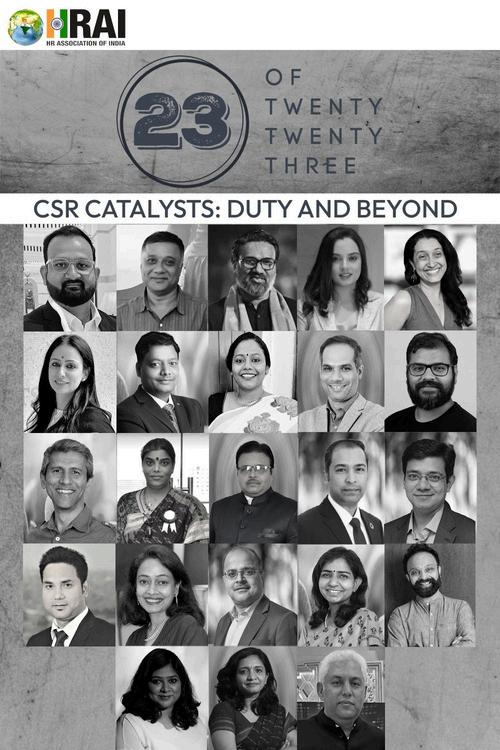
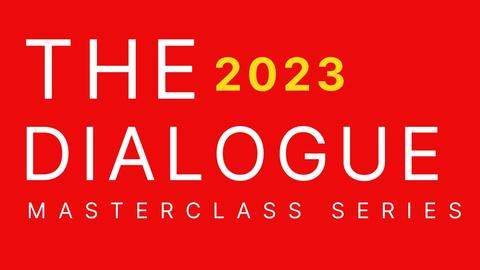

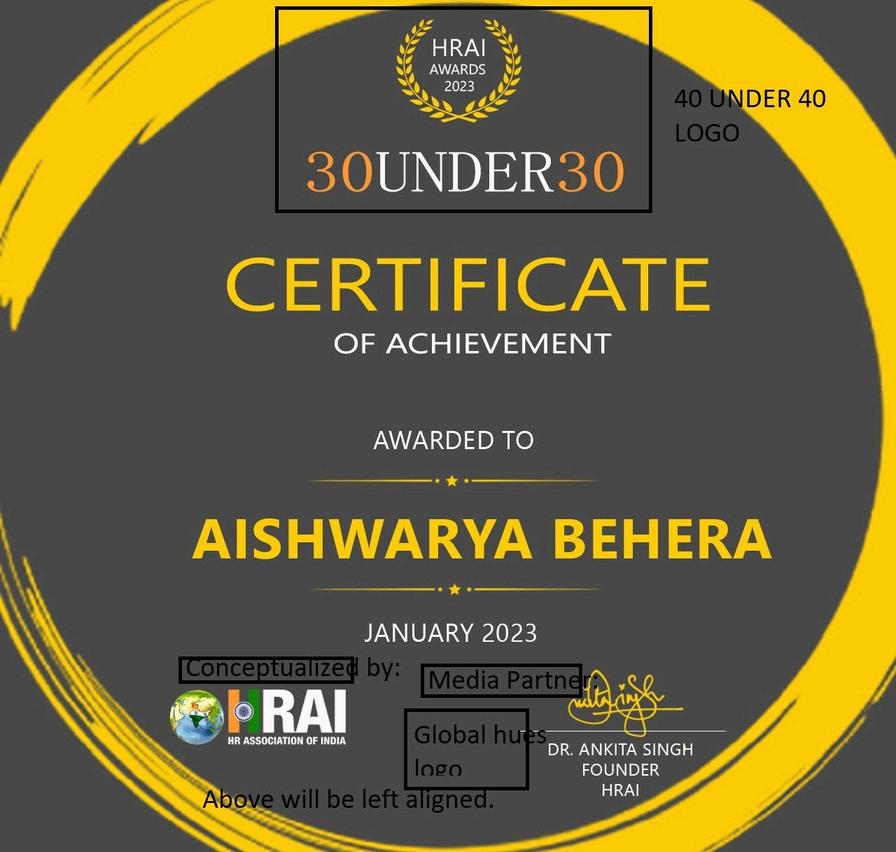

Inclusive leadership has become a critical driver of organizational success in the modern workplace. By fostering an environment where diversity, equity, and inclusion (DEI) are prioritized, organizations can unlock the full potential of their workforce, driving innovation, engagement, and growth.
Inclusive leadership is about creating a culture where everyone feels valued, respected, and empowered to contribute their best It's not merely about implementing policies but about embedding these principles into the fabric of the organization
Inclusive leadership is the practice of leading in a way that ensures all employees, regardless of their background, have equal opportunities to succeed This involves recognizing and valuing the unique perspectives and experiences that each employee brings to the table. An inclusive leader actively seeks out diverse viewpoints, encourages open dialogue, and creates a safe space where all voices can be heard. This approach enhances decision-
Amit Das, a seasoned HR professional with over 34 y held senior leadership roles at major MNCs a organizations like Tata Motors, Britannia, and Re Kellogg’s School of Management, he is currently Dir BCCL (The Times of India). Recognized globally Amit serves on several advisory boards and h government initiatives, including the SACRED em senior citizens and the CII B20 Taskforce. A r continuous learner, he is also a fitness enthusiast and
making and fosters a sense of belonging among employees.
Research consistently shows that organizations with diverse and inclusive cultures are more innovative and perform better financially. Diverse teams bring a variety of perspectives that can lead to more creative solutions and better problemsolving. Moreover, companies that prioritize DEI are more attractive to top talent, particularly among younger generations who value inclusive workplaces By embedding DEI into the core of their operations, organizations can gain a competitive edge in today's global market

years of experience, has and renowned Indian liance An alumnus of rector-HR & CHRO at for his contributions, as been part of key ployment platform for respected speaker and avid reader
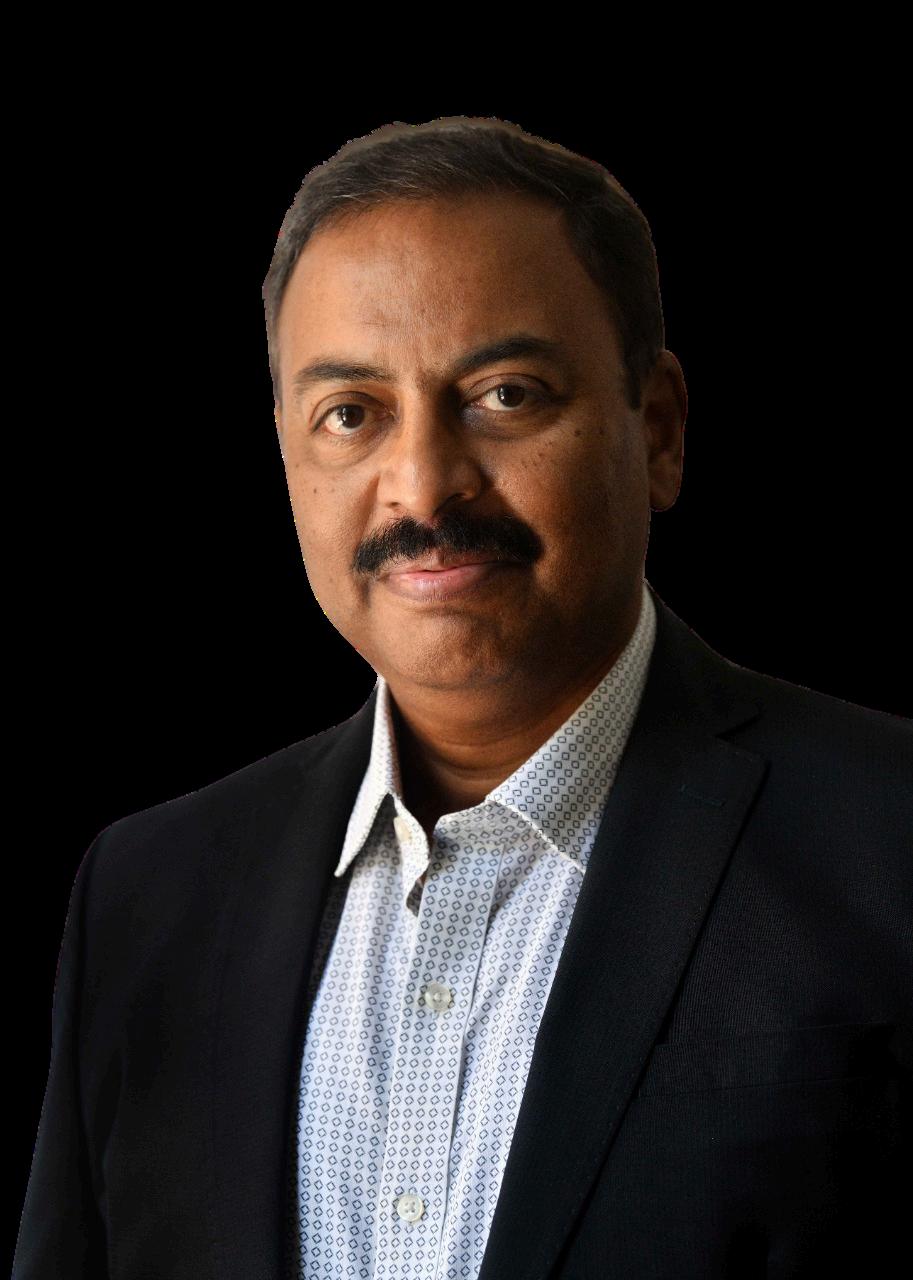


Creating an inclusive workplace culture starts with leadership commitment Leaders must demonstrate a genuine commitment to DEI through their actions and decisions. This involves setting clear DEI goals, allocating resources to DEI initiatives, and holding themselves and their teams accountable for progress It also means being open to learning and evolving, recognizing that DEI is an ongoing journey rather than a one-time effort
At BCCL, for instance, the "ELEVATE" program exemplifies our commitment to gender diversity. By actively recruiting talented women into various roles and providing them with the support they need to thrive, we have significantly enhanced our gender diversity and created a more inclusive environment.
Effective DEI policies are crucial for fostering an inclusive workplace These policies should address various aspects of the employee experience, from recruitment and onboarding to professional development and work-life balance. For example, flexible work arrangements and supportive parental leave policies can help employees balance their professional and personal lives, thereby enhancing their overall well-being and productivity.
One of our successful initiatives at BCCL is the provision of flexible work hours, allowing employees to complete their work hours anytime between 8:00 AM and 8:00 PM This flexibility supports a better work-life balance and accommodates diverse needs, contributing to higher employee satisfaction and retention.
DEI training is essential for raising awareness and building the skills needed to foster an inclusive workplace. This training should go beyond basic
compliance and focus on developing empathy, cultural competence, and inclusive behaviours among employees Interactive workshops, experiential learning, and ongoing education can help employees understand the importance of DEI and how they can contribute to creating an inclusive culture.
To ensure that DEI initiatives are effective, organizations must establish clear metrics and regularly assess their progress. This can include tracking diversity ratios, conducting employee surveys, and analysing retention and promotion rates across different demographic groups. Gathering and acting on employee feedback is also crucial for identifying areas for improvement and making informed decisions about DEI strategies

By actively recruiting talented women into various roles and providing them with the support they need to thrive, we have significantly enhanced our gender diversity and created a more inclusive environment.

While the benefits of DEI are clear, implementing effective DEI initiatives can be challenging. Common obstacles include resistance to change, unconscious biases, and a lack of resources or expertise. Addressing these challenges requires a proactive approach, including leadership commitment, comprehensive training, and ongoing support for DEI efforts.
At BCCL, creating platforms for open dialogue and providing mentorship opportunities have proven effective in overcoming these challenges. For example, the "Club of XtraOrdinary Women" offers a supportive network where women can share their experiences, seek guidance, and grow together This initiative has fostered a sense of community and empowerment among female employees
Recognizing and celebrating the successes of DEI initiatives is important for building momentum and sustaining progress Awards and recognition programs can highlight the achievements of individuals and teams who have contributed to creating an inclusive workplace. For instance, the "SHE unLTD. Awards" at BCCL celebrate the outstanding contributions of women colleagues, showcasing their achievements and inspiring others to follow suit Given the popularity of the award in 2023, it was relaunched in 2024 with new categories
Inclusive leadership is not simply a trend; it's a revolutionary force changing workplace dynamics. Today DEI is not just an HR move but a business requirement and leaders must welcome its advancement and foster an inclusive culture. This will not only attract exceptional talent but also support in fostering infinite success, innovation, and flexibility. In 2024, inclusive leadership will serve as the cornerstone of a more optimistic and inclusive future. At BCCL, the commitment to DEI is unwavering, and we will continue to champion inclusive leadership as we strive to create a workplace where everyone can thrive




Jaya cs office and Diversity, Equit DE&I) strategy for EY Glob
S) She has been with the firm ng the role of Diversity, Equit r in March of 2012, and the Ethics leader role in February 2018. In her role as DE&I leader, she focuses on initiatives that promote cross-cultural teaming and inclusive leadership, mitigate unconscious biases, and create an ecosystem that supports gender equity in senior leadership positions. Jaya heads the Ethics office and drives consistent behavior of the highest ethical standards across EY Global Delivery Services
At EY organization, we are committed to fostering an environment where all differences are valued, practices and opportunities are equitable, and everyone experiences a sense of belonging Diversity, equity and inclusiveness (DE&I) are at the core of who we are and how we work We see this as a critical business advantage and integral to our purpose of building a better working world.
With rising awareness of how social equity and social mobility shape career growth, we now have abundant opportunities to engage key stakeholders on LGBT+ inclusion through the lens of social equity After all, high-performing teams thrive on innovation and strong collaboration by harnessing diverse opinions, perspectives, and cultural references, guided by inclusive leaders who provide equitable opportunities
Celebrating Pride in a dynamic social and cultural landscape
Since embracing the United Nations global Standards on LGBT+ workplace equality in 2017. , EY teams have been unwavering in their global advocacy and allyship, fostering an environment where authenticity is not just accepted but celebrated Among our many initiatives, we recognize International Day Against Homophobia, Transphobia and Biphobia (IDAHOTB) globally every year. The day reminds us that many LGBT+ people around the world still experience high levels of social exclusion, inequity, discrimination and sometimes violence and incarceration just for being themselves.
At EY GDS, we proudly support a vibrant community of nearly 2,000 LGBT+
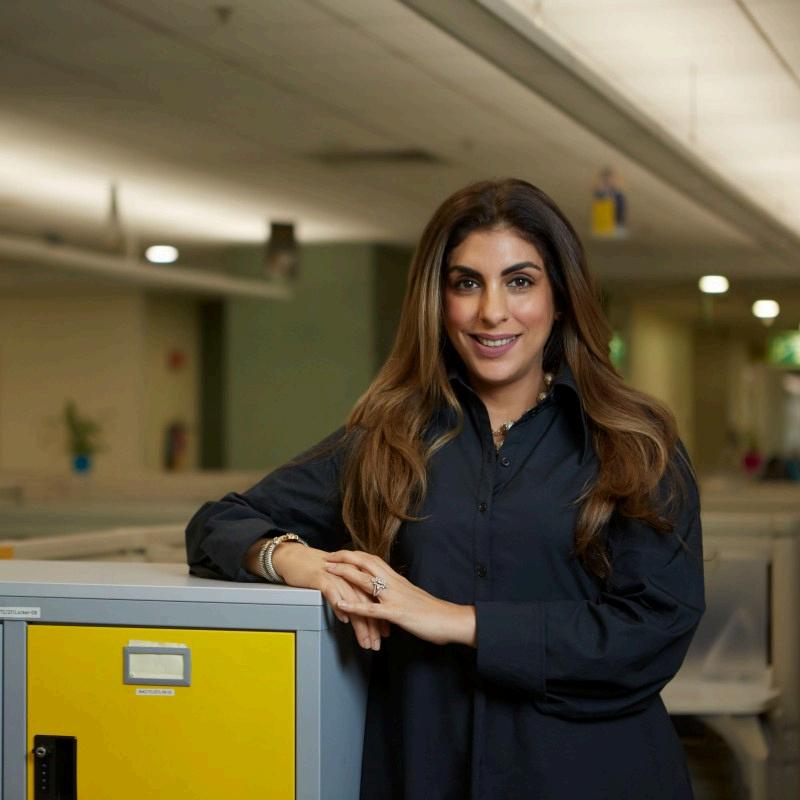


employees Yet, LGBT+ identities are looked down upon or even remain criminalized in several countries where EY teams operate.
We take the embassy approach to LGBT+ inclusion at EY GDS. Given the inconsistencies of cultural and social acceptance across EY GDS locations, we have a responsibility to help foster an inclusive and equitable environment for all our people.
For example, in India, before the decriminalization of Section 377 in 2018, we were already ahead of the curve –prohibiting discrimination based on sexual orientation and gender identity and introducing gender-neutral facilities. Our policies transcend traditional family definitions, offering spousal benefits including parental leaves to same-sex partners, and medical insurance coverage for gender affirmation surgery These strides are not merely about compliance, but more about setting a new standard for inclusive workplaces

As we navigate multiple dimensions of diversity – across gender identity, sexuality, age, race, socio-economic background, location and more, the call to be intentional about inclusive growth with no one left behind, is stronger.
Mapping the rainbow arc with strategic interventions
We are tuned into employee sentiments within EY GDS through continual listening, which we leverage for strategic updates to the people-facing policies and programs Through our periodic listening exercise, in FY24 alone, we arrived at averages of 83% people feeling free to be authentic, and 85% people feeling included and supported by their teams. These scores reflect the impact of the different ways we are building the culture of inclusiveness and belonging at EY GDS
We recognize the need for a top-down approach to raise awareness, foster sensitize, and build strong allyship among EY professionals across ranks and age groups. Beyond implementing systemic changes through inclusive policies, we are dedicated to cultivating transformative and inclusive leadership
The workshops for senior leaders challenge biases against the LGBT+ community through curated case studies and immersive learning, fostering a culture of acceptance Additionally, we leverage reverse mentoring to connect EY leadership teams with the realities and challenges faced by LGBT+ team members, gaining authentic insights to drive impactful change
The power of Unity in building community and resilience
Unity, the EY global LGBT+ allyship network, epitomizes our bottom-up approach to LGBT+ inclusion In 2024, Gen Z is expected to overtake baby boomers at the workplace and the group’s

powerful influence is reshaping the future of work.
At EY GDS, the Unity chapter is a strong pillar of support and advocacy for LGBT+ professionals and allies It has helped enable powerful forums within the organization where authentic voices are heard, and tough questions can be raised in a safe, judgementfree environment
One of these initiatives, the Unity Safe Space Conversations, started out as an avenue for LGBT+ team members to find solidarity virtually amid the pandemic
From a modest 45 to over 2,000 participants, these sessions have become a cornerstone of our commitment to psychological safety and belonging. Systematically, we're intensifying our efforts to implement equitable workplace practices not just at an organizational level, but also within teams. Here, every voice is valued without the influences of insider-outsider dynamics originating from heteronormative biases.
Through the Uplift Social Equity campaign and the EY GDS offshoot Equity Dialogues series, we are leveraging storytelling as a powerful tool to connect EY professionals By fostering empathy, we aim to help raise awareness of the diverse challenges stemming from various dimensions of diversity.
Going beyond the workplace to the communities, EY GDS also extends its mentorship to LGBT+ students by sharing role-model journeys and fostering an ecosystem of support The approach to LGBT+ inclusion is broad, offering a one-
hour self-paced eLearning program to initiate understanding and action.
Weaving diversity, equity and inclusiveness seamlessly into the corporate fabric
Today, a true measure of an organization's commitment to LGBT+ inclusion is reflected in its leadership. At EY GDS, leaders don't just advocate inclusivity they actively participate in fostering a workplace culture where everyone can thrive
In India, strides toward including the LGBT+ community at the workplace are evident, yet there's ample opportunity to create safer, more inclusive spaces where everyone feels empowered to be authentic. As we navigate multiple dimensions of diversity – across gender identity, sexuality, age, race, socio-economic background, location and more, the call to be intentional about inclusive growth with no one left behind, is stronger.
As leaders, we've moved beyond just looking at how to support LGBT+ inclusion at EY GDS; now, we focus on how to lead the charge in the industry. As we envision the future, let's recognize that the strength of EY teams, the success of the businesses, and the progress of our societies depend on our ability to embrace and help empower every hue of humanity. Through the lens of equity, proactive advocacy, empathy, and continuous learning, we can authentically celebrate ‘empowerment in every hue’.



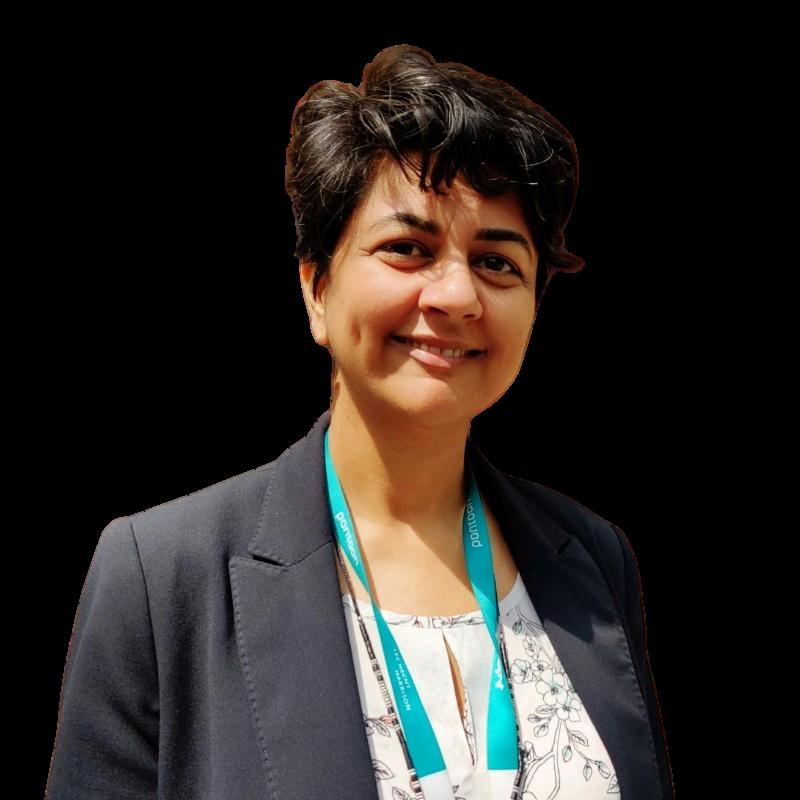
Manu, Director - General Staffing, Adecco, boasts an illustrious career spanning two decades. She excels in business transformation, P&L management, innovative project implementation, human capital oversight, and intricate resource strategies Her strategic prowess shines through as she effectively handles client escalations and engages with senior stakeholders across diverse sectors. Manu's expertise includes cultivating enduring client partnerships, fostering high-performance teams, pioneering novel business approaches, and demonstrating authentic, inclusive leadership. Her entrepreneurial acumen translates vision into impactful outcomes Moreover, her professional acumen is reinforced by ITIL Foundation V3 and CoBit Foundation certifications, underscoring her commitment to industry best practices. Manu holds a Bachelor's degree in Electronics and Communications from Mysore University and a PGPMax (Post Graduate Program in Management for Executives) from the Indian School of Business in Hyderabad.
India, a land of vibrant diversity and rich traditions, is witnessing a paradigm shift in the way it views the LGBTQ+ community. While legal battles and social movements continue to pave the way for equality, the professional landscape also needs an overhaul to truly embrace inclusivity One key area demanding transformation lies in dismantling the rigid structure of gendered job roles. Moving beyond the binary in job descriptions can empower LGBTQ+ individuals and unlock their full potential within the workforce.
For decades, recruitment practices have relied heavily on pre-defined notions of "masculine" and "feminine" roles. Jobs like academicians, secretaries, nurses, and flight

While legal battles and social movements continue to pave the way for equality, the professional landscape also needs an overhaul to truly embrace inclusivity.


attendants have been traditionally seen as "female," while positions like engineers, drivers, construction workers, and executives were deemed "male." This binary approach not only excludes individuals who don't identify within these categories but also limits the talent pool available to companies
The LGBTQ+ community, with its diverse gender identities and expressions, often finds itself caught in this rigid system. Transgender individuals, for instance, might feel discouraged from applying for a "female" role if it doesn't align with their gender identity. Similarly, a non-binary person might hesitate to pursue a "maledominated" field due to potential prejudice. This not only limits opportunities for LGBTQ+ talent but also deprives employers of access to skilled and motivated individuals A new approach that shifts the focus from gender expectations to skill sets and qualifications is crucial When evaluating potential employees, companies should assess their aptitude, experience, and passion for the role This approach allows individuals to be judged on their merit, opening doors for LGBTQ+ talent who may have been overlooked in the past.
Implementing these changes requires proactive steps from both companies and staffing companies like Adecco India. Here are some strategies to consider: Gender-Neutral Job Descriptions: Remove unnecessary references to gender in job postings Focus on the skills, experience, and qualifications
required for the position
Diversity Training: Educate HR personnel and hiring managers about LGBTQ+ identities and the importance of inclusive language in job descriptions
Standardized Interview Process: Develop a well-defined interview process with standardized questions to ensure all candidates are evaluated on the same criteria.
Targeted Outreach: Partner with LGBTQ+ organizations and communities to reach a wider pool of diverse talent
Mentorship Programs: Establish mentorship programs to support LGBTQ+ employees and create a safe space for them to thrive.
Real-world examples showcase the power of moving beyond the binary It is heartening to witness a paradigm shift where several forward-thinking organizations understand the true meaning of diversity and inclusion and have implemented inclusive hiring practices, creating more diverse workforces In our line of work, we work with several organizations that are challenging traditional recruitment methods and paving the way for a more equitable future
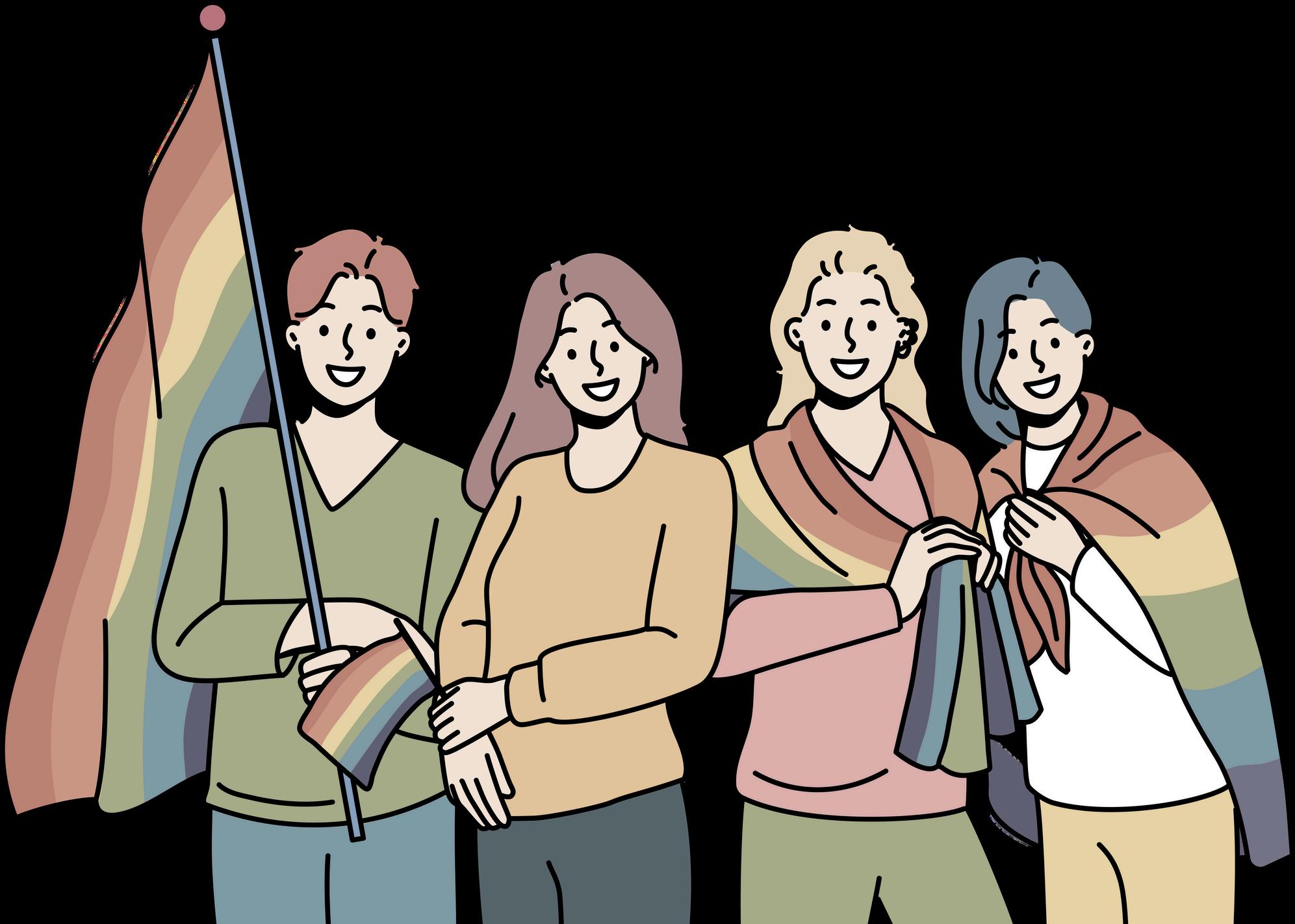
Positive portrayals of LGBTQ+ characters in the Indian media industry and the advertising world can play a significant role in empowering job seekers within the community. Films like "Chandigarh Kare Aashiqui" and web series like "The Married Woman" are breaking stereotypes and showcasing the diversity within the LGBTQ+ spectrum. These representations can inspire LGBTQ+ individuals to pursue their career aspirations with confidence. Moreover, they can send a powerful message to recruiters and companies, encouraging them to look beyond outdated notions when evaluating candidates
Moving beyond the binary in job roles requires a collective effort from companies, recruitment agencies, and the LGBTQ+ community When companies prioritize skills over gender stereotypes, they create a more vibrant workforce, fostering creativity, innovation, and a sense of belonging for all employees LGBTQ+ organizations can play a vital role in promoting awareness, advocating for inclusive practices, and connecting talent with opportunities.
Together, we can create a work environment where every individual, regardless of their gender identity or expression, feels valued, empowered, and able to contribute their unique talents to organizational success. By breaking the mould and embracing diversity in its truest sense, Indian workplaces can truly harness the potential of the LGBTQ+ community and unlock the path towards a more inclusive and prosperous future for all.
Finally, the importance of allyship extends

When
companies prioritize skills over gender stereotypes, they create a more vibrant workforce, fostering creativity, innovation, and a sense of belonging for all employees.
far beyond Pride Month It's a continuous journey of empathy, support, and advocacy. Let's celebrate the heroes around us, our LGBTQ+ colleagues, friends, and their families. Their stories inspire us and serve as a reminder of the progress we've made But the fight isn't over. Many LGBTQ+ individuals still struggle for acceptance and equal opportunity. Just like the courageous pioneers of the LGBTQ+ movement, it takes all of us to empower those who need it most Every act of allyship and every conversation that challenges prejudice contributes to a more inclusive world By embracing "difference” and championing inclusion in the workplace and beyond, we can create a culture where everyone can thrive and contribute their unique talents. Let's continue to break the mold together and build a future where everyone feels valued and empowered





Q: What was your journey like in discovering and embracing your authentic identity?
I come from a low middle class Gujarati family in a satellite city of Mumbai called Dombivali. My whole worldview was limited to my school and home until my 10th grade; my mom used to pick me up and drop me off at school
Again, in all my years, my world was just limited to the first bench. I've always been the so-called "scotch" student who would sit on the first bench, listen to all the instructions, do homework, do some extra, and go back to school So, I had no idea what was happening in the back benches
Ankit Bhuptani, an MBA in Social Entrepreneurship from NMIMS, is a leading DEI advocate with over a decade of experience. He has transformed 30+ companies and spoken at 70+ DEI events, including the UNHRC and G20. Recognized with the 'Global Diversity & Inclusion Leadership Award' in 2019 and 2022, Ankit collaborates with UN Women and speaks on platforms like TEDx and JoshTalks. His work champions LGBTQIA+ rights and fosters inclusive environments in various industries.

The conversation on gender identity, orientation, and all that was even like a faraway thing. Forget about that; even basic teenage physical changes and attraction did not exist in my worldview. These things all changed when I went to college, to a nearby city, in Ulaanbaatar, at CHM college, which is like a 20-minute train ride from Dombivali. There, for the first time, somebody called me gay, and I was quite confused, like, what does this mean? So, as a good student, I went to the library and got an Oxford dictionary, in which there were two meanings to that word. One was someone who is super happy, in old English, and the second one is homosexual So, I thought, oh, my God, am I both? Am I one? Or probably, most probably, I'm both.
Each time a person says, "Yes, I am queer, I'm gay, I'm lesbian, I'm bisexual, I'm trans," remember that 50% of their coming out journey is already complete.
I'm a super happy person, and also, I am somebody who is attracted to the same gender. So, the terminology did not exist in my worldview until way before I discovered myself being different. Looking back at my childhood, I always had an attraction towards the same gender, whether it was Shaktimaan on television, or a shirtless actor in a song, or Mihir fromKyonki Saas Bhi Kabhi Bahu Thi, when I used to go to my mama's place and watch that TV opera So, in my childhood, I always had an attraction towards the same gender, but I could not describe what it was. And I had no terminologies and language to express it.
Fast forwarding, when I discovered the term as a funny or derogatory term called by somebody in college, I got to know its meaning And then maybe, I started discovering that, yes, maybe this is the terminology I should identify with, or I may be the one. But yet, acceptance was not there

Acceptance took a much longer time, wherein I found a community, found pride parades, and found like-minded people who have accepted themselves. Seeing them gave me the courage to accept myself
Q: How do you envision a more inclusive and accepting society for LGBTQ plus individuals? And what steps do you believe are necessary to achieve it?
There are two points to it
One is the policy and second is the implementation of the policy So, there needs to be concrete policy changes which talk about antidiscrimination acts, marriage equality, adoption rights, and vertical trans person's reservation These are concrete tangible policy changes; some of them have already been achieved or implemented, like during the NALSAR judgment, the Supreme Court has instructed the government to implement vertical reservations for transgender people, not the whole LGBT community. I do not support reservation for the whole LGBT community; I support only for the trans community within the LGBT spectrum Okay, I'm very specific on that. Because they're the most marginalized within the LGBT spectrum But then, an anti-discrimination act needs to be there.
Talking about marriage equality, I do not see the reason I should not be given the right to marry the person whom I love just because the person happens to be of the same gender. So, one is the policy change The second is how do we transfer those policies on the ground? Policy change is an equal elimination of hate or acceptance, right.
So, in that case, I think the civil society, community, and stakeholders of the social norms need to take the initiative in a collaborative way. And then, taking that change to the ground is something different. So, this is how I envision it.
Now, how do we achieve it is your second question. There are multiple ways to achieve it. The very first one is what we as an LGBT community can do. Let me start by talking about inward and then outward, like putting fingers on myself first. I feel that we need to, like, we as a society or community need to talk about our identities in a collaborative way, in a way the Indian audience understands, in a language that is not completely copied from the West but something which is coming from our home, which has a resonance on the ground
Many times, we see that we are copy-pasting the Western language of rights, as it is, in India. And then, we find that acceptance, of course, but this acceptance is limited to urban English-speaking elite class. And then, it does not come down to the ground level where the real Bharat exists So, we need to really first of all, the LGBT community now has reached a privileged space or a point in our movement, wherein we can find our own solution and not look to the West for every solution to the problem we have Find an Indian solution, especially the language to connect with the people that are first

We as a society or community need to talk about our identities in a collaborative way, in a way the Indian audience understands, in a language that is not completely copied from the West


Now, in terms of external, depending on the stakeholders, so business community can talk about diversity, equity, inclusion in a real sense, again, going beyond what the basic mandates are asked to them to do by their headquarters in New York or Hong Kong, to talk about real diversity, equity, inclusion, wherein each employee feels comfortable and can find their full potential, right.
So, the business world can do their bit, the government can do their bit, the civil society organization can do their bit So, I feel that implementation is the collective effort that needs to be done in a collaborative way, not a confrontational way. I, as an activist, reject to see somebody as my enemy.
In the LGBT rights conversation, I see people who agree to the conversation And I see the people who are yet to agree to the conversation, or will accept LGBT people And the way to reach out to the other person is to find a common minimum ground.
And utilizing that space in a collaborative way and not a confrontational way, in a non-threatening way. I always believe in calling in people instead of calling out to people. Generally, the LGBT movement is very quick to call out people who may not align with their ideas.
But when my approach is always calling in people, that can we have a conversation with the people who do not agree with us, and try to make them understand our point of view, instead of just saying that, hey, and labeling them and cancelling them out or rejecting them.
Q: What initiatives or activities do you participate in to support and advocate for the LGBTQ community?
So, I have three verticals on which I work. The first one is education I do capacity building of educational
institutions, colleges, and schools, where we discuss diverse gender identity, orientation, and ageappropriate content It's crucial that the conversation is age-appropriate, unlike what we sometimes see in the West, where the content can be vulgar and uncomfortable for both students and parents We need to ensure that discussions about LGBT identity are handled sensitively and with parental involvement, respecting their concerns while educating appropriately
The second vertical is the workspace I conduct capacity building sessions for companies, both multinational and Indian, on their diversity, equity, and inclusion journey. This ranges from sensitization talks and workshops to comprehensive transformations of their operations and policies
The third vertical involves socio-cultural activism, where I engage with religious and cultural stakeholders to foster understanding of LGBTQ identities. I founded a support group called the Square Hindu Alliance, which bridges the gap between LGBT rights and Hinduism I collaborate with organizations like the National Council of Churches in India (NCCI) to promote inclusivity within religious communities. Additionally, I work closely with the India Foundation, a cultural think tank, to promote acceptance of LGBT identities at a societal level. These are the three areas where I focus my efforts: education, workspace, and culture, faith, and society.
Q: What do you hope people take away from hearing your story, or the stories of others within the LGBTQ community?
Well, I personally feel that India is a land of storytellers; we really love to hear stories, celebrate them, and pass them on India as a civilization has thrived because of our core belief in the power of storytelling That's what makes Bharat what we are

today. I'm out because I heard real stories of people who found courage to come out before me in the 90s, 80s, and 2000s I'm out today because there could be a 15, 16, or 17-year-old Ankit or Ankita reading this conversation and finding the courage to come out I'm passing on courage and inspiration in the form of stories from those who came out before me to the next generation. The message you can learn from not just my story, but from queer people's stories overall, is simple: living your authentic self is the greatest act of courage. Nothing should compromise your act of coming out and living authentically It's not just about being LGBT; it's about challenging societal norms and making space not only for yourself but also for others to find their authentic selves. Each time a person says, "Yes, I am queer, I'm gay, I'm lesbian, I'm bisexual, I'm trans," remember that 50% of their coming out journey is already complete. The friends, family, society, and state play a role in the rest of the 50% The first 50%, accepting yourself just the way you are, is the most difficult part The moment I told myself, "Ankit, I am gay," was when 50% of my journey was completed. That's what you can learn from any queer person who is out and proud
Q: What advice would you give to someone who's struggling to come to terms with their identity and seeking acceptance?
So, there are three things to keep in mind while you are coming out Ask yourself three basic questions One, is your physical safety under question or in danger? I've seen cases where people have been put in house arrest by their parents, not allowed to go out, use their phones, or continue their education after coming out. Or cases where physical harm or abuse has occurred, though not as common in India as in West Asian countries like Iran If you think your physical safety could be at risk, then I advise you not to come out right now Ask yourself, "Will I be physically safe if I come out?" The second question to ask yourself is, "Do I have enough resources to survive
The message you can learn from not just my story, but from queer people's stories overall, is simple: living your authentic self is the greatest act of courage.
on my own? "Even today, I receive calls from people in tier two or tier three cities or villages saying they've been thrown out of their homes after coming out. They end up on the streets. What do they do? We have to look for NGOs nearby to provide shelter for a few days. But remember, nobody will take care of you for your whole life If you are studying and financially dependent on your parents, and you think your survival will be in question, I would advise you to hold on Complete your education, become financially independent, and then come out
The third question to ask is, "Am I emotionally strong enough?" No coming out, whether in Mumbai or New York, Bhagalpur or the smallest village in Bihar, is without drama You're breaking the idea of yourself that was formed even before you were born There will be emotional drama. You need to be a parent to your parents when you come out The world of queerness is new to them Assure them it's okay, and you'll be fine, as their concerns come from love and care for you. Don't label your parents as homophobic; have empathy for them before coming out.
Be a parent to your parents. They come from a different generation, and it's our responsibility to guide them on this journey, just as they guided us when we were young. These are the three questions to ask yourself before coming out If the answer to any of these questions regarding physical safety, resources, and emotional well-being is no, I would advise you to hold on for now, be in a position of stability and comfort before coming out

RI C H A S I N G H
In the realm of inclusivity, perception often clouds reality It wasn't until delving deep into the LGBTQIA+ community that one could truly grasp the extent of discrimination they endure A journey of understanding unfolded, revealing the nuanced struggles faced from childhood through adulthood.
In our world a child's innocence is tainted by societal norms dictating how they should behave based on their gender Such constraints limit self-expression and foster a cycle of conformity or conflict Yet, these experiences are mere fragments of a much larger narrative woven into the fabric of society.


Richa Singh, is the Head of DEI & CSR Corporate Social Responsibility) at Ma Richa has an experience of over 20+ y along with extensive knowledge & expe and Inclusion. A certified Coach and inclusion is not only a human rights iss She was recently recognized as one of th from being in the Global Top 50 Ally E supported by Yahoo Finance She is a Naagrik e-Choupal an initiative of Niti A In her previous role, she helped set up th profit working towards LGBTQIA+ incl impact with broader ESG initiatives incl livelihood, Environment conservation and

Transitioning into the corporate landscape, LGBTQIA+ inclusion remains a topic shrouded in uncertainty Questions arise: Is it legal? Why discuss personal matters at work? However, beneath these inquiries lies a fundamental truth the burden of "covering up" one's true identity exacts a toll on mental well-being and productivity.
At its core, Pride Month serves as a poignant reminder of the ongoing struggle for equality and acceptance. It's a celebration of resilience, courage, and authenticity a testament to the power of community and solidarity. However, amidst the rainbow
flags and parades lies a sobering reality: the fight for LGBTQIA+ rights is far from over. In the workplace, the importance of LGBTQIA+ inclusion cannot be overstated Beyond mere compliance with legal mandates, fostering a culture of acceptance and respect is imperative for organizational success Studies consistently underscore the positive correlation between diversity, innovation, and financial performance.
A company's ability to attract and retain top talent hinges on its commitment to inclusivity. Employees who feel valued and supported are more engaged, productive, and


R (Diversity, Equity & Inclusion and x Life Insurance An IIM -C alumni, years in Learning and Development, rtise in the field of Diversity, Equity a mentor she firmly believes that ue but a business imperative as well. e Top 20 DEI Leaders in India apart xecutives List 2020 by OUTstanding also an SDG Ambassador by SDG Aayog, UN Habitat, WHO and more. he Keshav Suri Foundation; a not for usion She continues to make a social uding Financial Literacy, Sustainable d employee volunteering programs

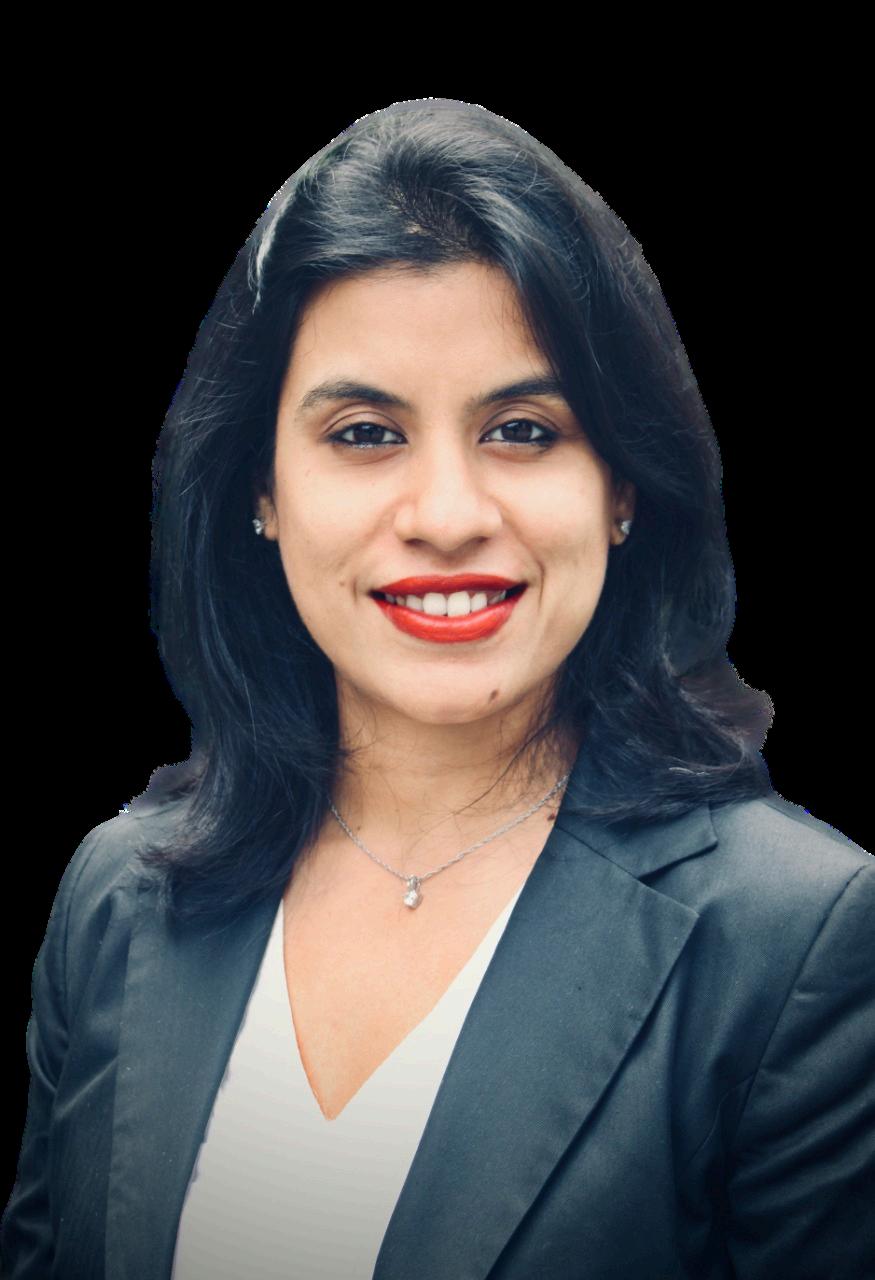


Let us reaffirm our commitment to inclusivity, not merely as a checkbox on a corporate agenda but as a guiding principle shaping our interactions and decisions.

loyal Conversely, a culture of exclusion breeds discontent, leading to higher turnover rates and diminished morale
The business case for LGBTQIA+ inclusion extends beyond moral imperatives it's a strategic imperative. By harnessing the diverse perspectives and talents of all individuals, organizations gain a competitive edge in today's dynamic marketplace. Innovation thrives in environments where diverse voices are heard and valued.
Yet, progress towards LGBTQIA+ inclusion remains uneven, with many organizations grappling with inertia and indifference Overcoming these barriers requires bold leadership, proactive policies, and ongoing education. It's a journey of transformation that demands both courage and commitment As we commemorate Pride Month this June, let us reaffirm our commitment to inclusivity, not merely as a checkbox on a corporate agenda but as a guiding principle shaping our interactions and decisions
It's a call to action for individuals and institutions alike to stand in solidarity with the LGBTQIA+ community and advocate for meaningful change Start small, if you are confused..
• Learn about the community
• Watch Movies/ series based on the community
• Read a book about their lived experience
• Understand the alphabet soup; What do the letters LGBTQIA+ stand for ?
• Initiate an internship program in your organization
• Listen to the community
• Get an expert to speak to your leaders
• Utilize your CSR funds in helping an NGO that works for the community
• Examine your HR policies for inclusion practices
• Build all-gender washrooms
• Extend insurance coverage for same-sex partners
• Relook at the office dress-code

In the words of Justice Indu Malhotra, "History owes an apology to members of the community for the delay in ensuring their rights." Let us heed her call to action, embarking on a collective journey towards equality and acceptance In embracing diversity, we embrace humanity in its entirety a tapestry of unique experiences, identities, and aspirations. It's time to rewrite the narrative, ushering in a new era of understanding, respect, and solidarity.
As we raise our voices in solidarity with the LGBTQIA+ community, let us remember that the journey towards equality is long and arduous But with each step forward, we inch closer to a world where love triumphs over hate, and all individuals are free to live authentically, without fear or shame.



Ruchira brings a unique blend of strategic HR and cross-functional expertise, with over 25 years of experience across diverse industries such as Manufacturing, Consulting, Hospitality, Retail, Banking & Insurance She has played pivotal roles in transformation journeys within the BFSI sector and has contributed to areas beyond HR including New Product Development, Business Excellence, Knowledge Management, and Business Ethics With 14 years at Tata's and experiences ranging from iconic organizations like Taj to startups like CROMA, Ruchira currently serves as the CHRO at Kotak Mahindra Life Insurance Co She holds degrees from IRMA and NMIMS, and is a Global Fellow in Talent Management from the Wharton School. She is passionate about mentoring working women professionals and enjoys pursuing photography and storytelling outside of work Ruchira resides in Mumbai, India

In the ever-evolving landscape of workplace diversity, the essence of inclusion transcends mere compliance with legal standards. True inclusion means creating a culture that not only respects but celebrates the diversity of each individual, especially those from the LGBTQ+ community. As HR professionals, our role is not just to implement policies but to weave inclusivity into the very fabric of our organizational culture.
Compliance with legal standards is a necessary foundation, but true inclusion delves deeper it's about seeing LGBTQ+ employees as integral parts of our organization whose experiences and identities are valued Imagine a workplace where every individual feels not only accepted but truly welcomed. What does that look like? It starts with us, in HR, fostering an
environment where everyone, irrespective of their identity, is encouraged to thrive.
Cultivating an Inclusive Culture
Leadership commitment is paramount in cultivating an inclusive culture Leaders must embody inclusivity, setting a tone that permeates through every level of the organization. Consider a scenario where a senior leader openly participates in diversity workshops or supports LGBTQ+ events within the company. Such actions send a powerful message that inclusion is a priority at all levels
Leaders must embody inclusivity, setting a tone that permeates through every level of the organization.
We must ask ourselves: Are our efforts making a difference? Looking at engagement and retention rates among LGBTQ+ employees can help answer this.



Education and Training: Effective training programs are essential. Rather than just ticking boxes, these programs should challenge preconceptions and spark meaningful conversations For example, how prepared are our colleagues to interact inclusively? Are they aware of the nuances of gender identity and sexual orientation? Engaging training sessions can transform unfamiliarity into understanding, turning potential awkwardness into comfortable interaction.
Support Networks and Mentorship: Support networks provide more than just a forum for discussion; they offer a lifeline for those who might feel isolated. An anecdote worth sharing could be about an employee who found the courage to come out at work because of the support and advice received from a network group, highlighting the real-life impact of such initiatives
Inclusive Policies and Benefits: Reviewing HR policies to ensure inclusivity might include expanding health benefits to cover same-sex partners or ensuring that parental leave is adaptable to all family structures. Think about the message this sends: We see you, we value you, and we support you.
Regular Feedback Mechanisms: Implementing and improving inclusion initiatives require knowing they work effectively This can be gauged through regular feedback mechanisms such as surveys or forums Imagine a quarterly town hall meeting where employees are free to voice concerns and suggest improvements directly to senior management How empowering would that be for ensuring everyone’s voice is heard?
Celebrating Diversity: Celebrating important LGBTQ+ dates is crucial, but it’s the manner in which we celebrate them that counts. For instance, when planning events for Pride Month, involving LGBTQ+ employees in the planning process ensures authenticity and respect in the celebration, avoiding tokenism

Finally, measuring the impact of our initiatives is crucial for sustaining change We must ask ourselves: Are our efforts making a difference? Looking at engagement and retention rates among LGBTQ+ employees can help answer this Moreover, celebrating small victories, like an increase in LGBTQ+ leadership, can boost morale and encourage continued efforts.
In conclusion, fostering true inclusion in the workplace requires more than just policy—it demands a shift in culture. As HR professionals, we are both the catalysts and custodians of this change, tasked with creating an environment where every employee, regardless of their sexual orientation or gender identity, feels truly valued and empowered to succeed

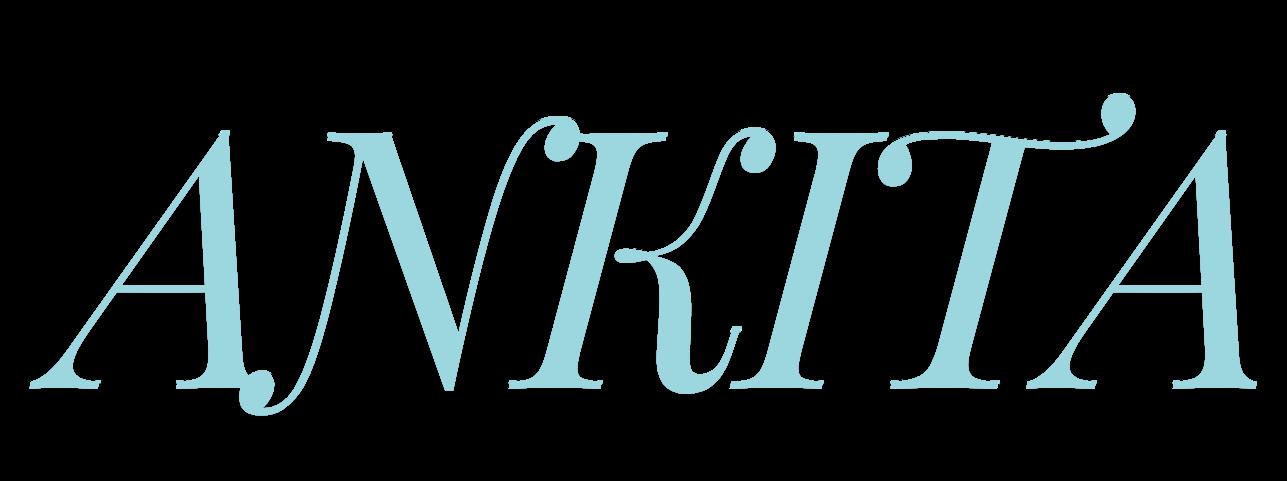
Ankita Mehra is a renowned problem solver and leader in diversity and inclusion, with extensive expertise in employer branding She is a two-time TEDx speaker, featured in over 100 publications, and has delivered 300+ corporate talks. Recognized among India's Top 20 Diversity & Inclusion Leaders and Top 20 LGBTQ+ Youth by the Keshav Suri Foundation, Ankita is also a prolific LinkedIn content creator. She excels in team building, networking, and stakeholder management, with skills in strategy, project management, sales, content creation, leadership communication, marketing, and public relations
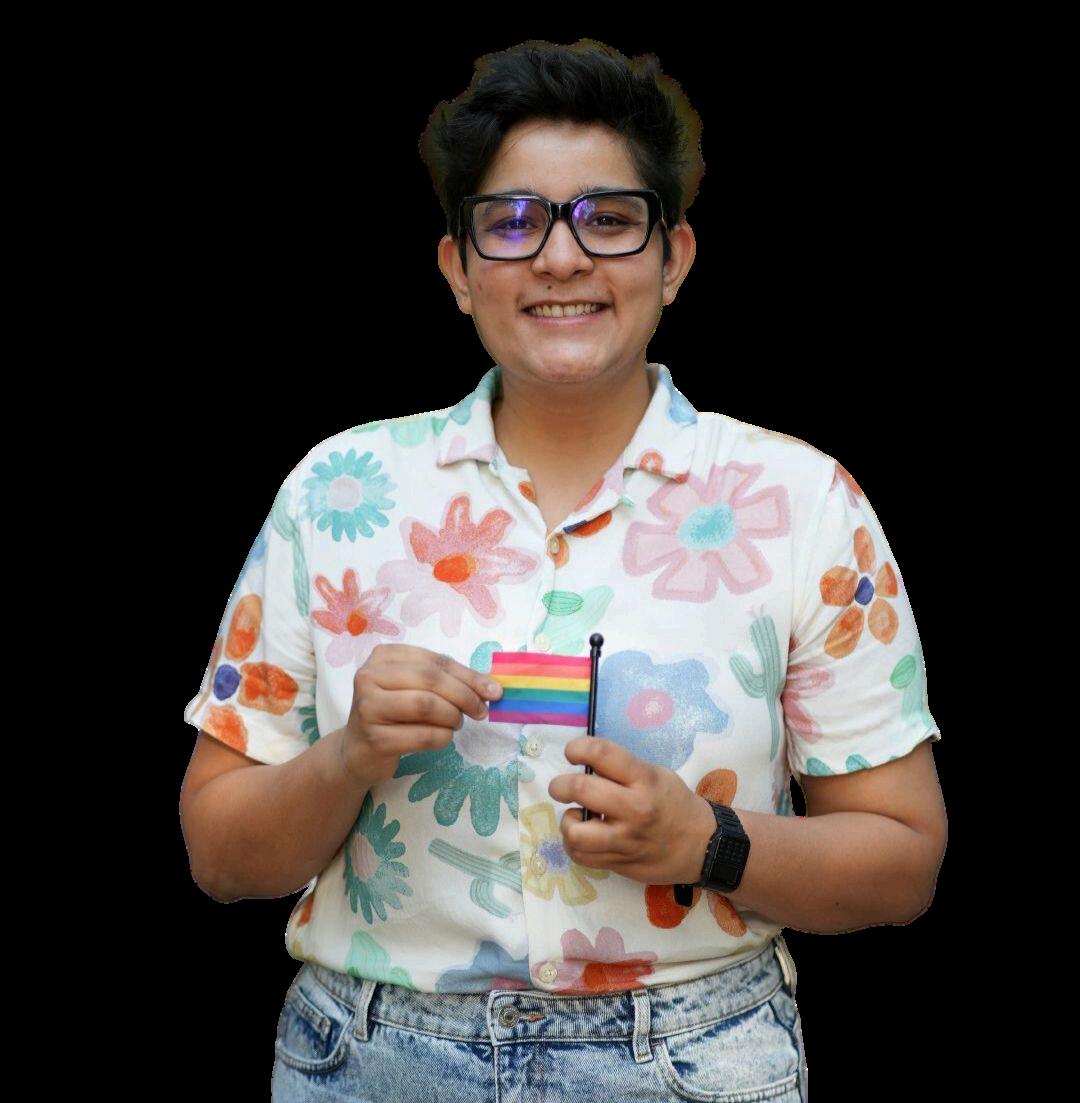

Q: What was your journey like in discovering and embracing your authentic identity?
Journey was definitely a bit of a struggle because I was actually born in 1996 and during that time, the access to the internet was very less because it also depends on what income category your family comes into Because at that time the internet was for privileged families who had only one phone and the lack of education and awareness around this was really less So childhood was very difficult to even identify what is going on and I have a disease, I have a problem. But growing up, I saw a lot of changes in myself, like I was not happy with my body, I was not happy with the expressions I have.
So I identify as a Queer woman only. It means I love to be a woman,[1] but I am attracted towards women So you have not seen any representation like that in movies, series and TV So it was really difficult to know that you're the only one in the world.
You can't share this with anyone because the openness on talking about this topic or even hearing this word was nowhere till 18 years. I was 18 years old. People were hesitant to even talk about
this community and when we used to have this LGBTQ representation, I've only seen transgender people in the movies where they were made fun of.
Like the character was not given justice. They were used as a comic critic or comic character in the movies and series, which used to hurt me that, you know, what is happening? Maybe I'm from this community. So my whole childhood was very confusing
So it was finding answers till I got access to the internet, till I got to know my sister. So the first time I got to know what my sexuality was from my sister was when I shared it with her that this is who I am and this is what I feel and then I finally got to know that I'm a lesbian woman or maybe I'm a bisexual woman. I was in class ninth.
So yeah, that journey of being confused, the journey of not knowing answers was really difficult and I wonder what it would have been like for people who were, you know, born before me or they were born in the 1960s or my dad's age I've seen, I can only imagine the struggle that they have gone through because at least we somewhere got the access to phone and internet, but the people before us freaks me out that how they even get access to know about themselves. So my struggle is less than in front of them, but the current generation will have fun.
Like they will have every information on their tablet, on their phone, through the



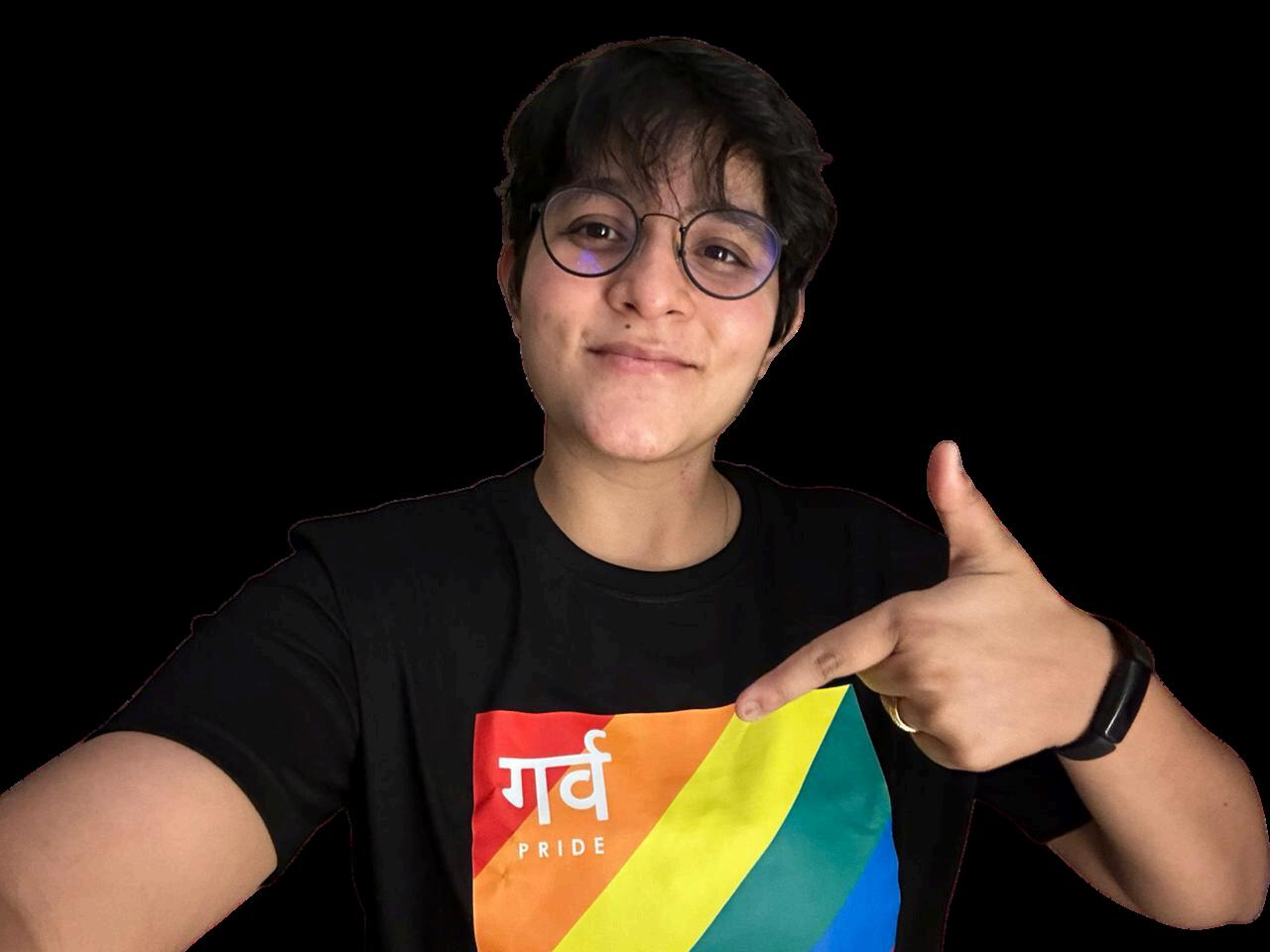


internet They can make more people like them They will be more aware.
I can see the difference in my cousins who are in class 9th and 10th. They are more aware about this topic than my generation classmates were So not knowing about yourself for a long period of time and being confused every day is not a good thing to have because you always question your identity, your existence, your appearance, your confidence, your purpose in life.
And if you see, I'm not sure if you've seen my LinkedIn post recently, I've shared my marksheet of class 8th And in that marksheet, I had E, E, D, E, even F. And there was one subject I scored C, which was the best result in the whole marksheet. And it was for class 8th.
And when I look back, I realized that class 8th was really triggering for me because I was not happy in my life That time, puberty hit me and every friend of mine was making boyfriends and they were happy And I liked someone and I couldn't even confess to that person about my feelings.
I knew that if I do, then I'll be insulted. I'll be, you know, made fun of The worst part of my life and existence, which I've still not been able to move on from, you know, bullying from my teacher.
There was one teacher who was behind my life, like literally, even though I've not done anything wrong, I've not fought, I've not done illegal things in the school, I've not bought phone, I've not gotten drunk, like I've not done anything wrong things, which usually happens in school. They were actually bullying someone who was already being bullied rather than protecting someone from being bullied, my teachers, right? I still remember my sister was a topper and I scored the smart marks, right? So in class, I remember being
very scared of that teacher's existence Whenever she used to come near our class, I used to like, sweat my heart out, like from every place possible, I'm sweating out. And I was really scared. I was really anxious. And I remember one day she invited me to the staff room
And when I was called to the staff room, there were many teachers in the room. And then she had a problem with the way I was walking and the way I was talking to a boy. So she thought I'm talking to a boy because I have some I want to have a relationship with
But so she started having that image that I'm that person who's just behind boys and who's not good of a character just because I was different I was bold. So she kind of insulted me in front of the whole staff room, which is which right now also I'm talking about, I get, you know, really anxious that I shouldn't have gone through that. And every teacher had an image about me that I'm a very bad student. I'm a characterless student just because I was different So yeah, that trauma is to carry it till I'm grown up.
So accepting my true self started from giving self confidence to me to get support from allies, like my sister supported me When I was growing up, I started ignoring hate comments and started actually working on myself with greater education and good focus and confidence. I knew that education is the only escape from the situation that I'm in
And right now I'm blessed that I gave my life another chance to learn more and work really hard So from the girl who used to score EDFCG or whatsoever, she scored 81.6% in class 12, with the best of four being 90%. I got admission in one of the top colleges in commerce Then I didn't go there because of some family issues, then I studied for three years of my life, I was a topper of my college.

And my academic performance always gave me that dopamine hit and the confidence that, of course, you can conquer the world And then in this journey, my sister was always there. And then I came out to my father, when I've gone to roadies
So when I went to roadies, I came out to the world. And then I came out to everyone. And then I came out to my father, I got accepted by my close family, I was not accepted by my extended family.
It took time. But the one thing which stood firm with me was my family, my career, my ambitions, my confidence. And yeah, that has led me to accept the way I am today
Q: How do you envision a more inclusive and accepting society for LGBTQ individuals? And what steps do you believe are necessary to achieve it?
First, the world should be inclusive, eliminating the need for individuals to "come out." The fear associated with coming out is a terrible experience for many queer people, who often live in constant apprehension, fearing rejection or discrimination from their families I envision a world where acceptance is the norm, and individuals are embraced for who they are without the need for disclosure.
To achieve this, constant advocacy and education are essential. Representation of queer individuals across various sectors, including economics, healthcare, law, and government, is crucial. Representation matters because one person's visibility can positively impact the lives of many, serving as a source of inspiration and proof that success is attainable
However, achieving inclusive environments is hindered by persistent issues such as bullying and
discrimination in schools Many queer students face bullying, leading to increased dropout rates and mental health challenges To address this, schools must adopt inclusive policies, provide mentorship, and create safe spaces where students can express their authentic selves without fear
Additionally, equal legal rights are vital for queer individuals, including the right to marry, adopt, and own property Inclusive education plays a crucial role in shaping future attitudes towards LGBTQ+ issues. By teaching children about diversity, gender equality, and LGBTQ+ rights, we can foster a more accepting society.
Sustainability in these efforts requires a long-term commitment to education and advocacy. While progress is being made in challenging societal norms and biases, we must ensure that future generations continue to receive comprehensive education on LGBTQ+ issues. Allyship is also crucial, as individuals and communities must come together to advocate for equal rights and support one another in the journey towards acceptance and equality.

While progress is being made in challenging societal norms and biases, we must ensure that future generations continue to receive comprehensive education on LGBTQ+ issues.

Q: What initiatives or activities do you participate in to support and advocate for the LGBTQ community?
So, firstly, I create a lot of content on LinkedIn focused on pride inclusion, providing news and information about the pride community. My core goal is to raise awareness within the LinkedIn community, particularly for those involved in interviewing and hiring from the pride community, aiming to mitigate unconscious biases and encourage corporate allyship and opportunities That's number one
Secondly, I offer mentorship, connecting with individuals to guide them on becoming allies and fostering inclusivity I engage with HR and talent acquisition professionals, offering insights on implementing pride inclusion strategies using innovative methods Number three, I conduct corporate sessions on diversity and inclusion, delivering leadership talks and conversations essential for corporate leaders.
The fifth aspect of my work involves volunteering as a board member at the Tweet Foundation, which focuses on supporting transgender individuals through education, empowerment, and practical assistance We provide education loans, support for gender affirmation surgeries, assistance in name changes, temporary shelter, and skill development to enable access to corporate jobs, aiming to reduce reliance on sex work or begging
Additionally, I empower queer individuals by assisting them in job referrals and directly connecting them with talent acquisition leaders My vision emphasizes action and responsiveness, providing emergency resources and support for various issues, including family acceptance concerns. I strive to be a one-stop solution for anyone seeking guidance on pride inclusion,
offering reliable resources and support without charge. My passion lies in educating others on pride inclusion and promoting hiring practices that prioritize diversity and inclusivity. That's the essence of my work.
Q: What do you hope people take away from hearing your story and the stories of others in the LGBTQ community?
The core message I want to convey is that my sexuality is just one aspect of who I am, not the entirety of my identity The same holds true for every individual. Sexuality and gender are integral parts of identity, but they don't define a person entirely. They can excel in various roles, whether as professionals, friends, family members, or simply as human beings. Everyone deserves equal treatment and respect without having to plead for it; it's a fundamental right
To the audience, I urge them not to view members of the LGBTQ+ community solely through the lens of their sexual orientation or gender identity. Just as they hold multiple roles and identities, so do we. We are capable of achieving great things beyond our sexuality and gender. Many queer individuals have reached remarkable heights in their careers and personal endeavors.
Another message is that dedicating even just 30 minutes of one's time to learn about LGBTQ+ inclusion can make a significant difference It's not a daunting task; it's about embracing our shared humanity I believe that every person possesses a soul, a divine essence. Treating others with disrespect hurts that essence, and no one deserves that. Regardless of someone's background or identity, there's no justification for hate
It's crucial to confront our unconscious biases regularly. It's okay to acknowledge when we're

Embrace yourself for who you are and don't let the world's negativity define you. Educate those who spread hate, but if they remain ignorant, distance yourself and focus on self-love.


wrong and strive to improve Self-awareness and self-improvement are essential for personal growth I practice this mindset myself, continually questioning and challenging myself to become a better person.
Q: What advice would you give to someone who's struggling to come to terms with their identity or seeking acceptance?
I always recommend talking to people, especially since therapists are readily accessible now. If you're part of the LGBTQ+ community, I suggest having a session with an affirming therapist. Sharing your feelings, expressions, and emotions can help you understand yourself better. If you're struggling with self-acceptance, reaching out to someone can be immensely beneficial. Personally, talking has been incredibly helpful for me, and hearing about others' experiences has provided valuable insights.
Connecting with more people from the community is the second thing I recommend Feeling like you're not alone can make a significant difference in accepting yourself.

Thirdly, focus on your education and empowerment. Having your own income can be crucial for survival, especially if things become challenging. Prioritize your education and career to ensure self-sustainability in a world filled with hate
Additionally, every city and state has its own support groups for the LGBTQ+ community. Identify the groups in your area, and if you're unable to find one, feel free to reach out to me for assistance in connecting with relevant organizations Lastly, love and accept yourself Remember, being LGBTQ+ is not a choice; it's who we are Embrace yourself for who you are and don't let the world's negativity define you. Educate those who spread hate, but if they remain ignorant, distance yourself and focus on self-love. Self-acceptance is crucial in this journey; it empowers you to stand against the hate with resilience. Always remember, you are awesome just the way you are Cherish yourself and make the most out of this precious human life



Sandhya is a seasoned finance professional with over 20 years of experience in driving strategic initiatives, transformation, financial planning and analysis, business finance, risk management, and more. She currently serves as the Group CFO at Narayana Health since December 2021. Prior to this, she held leadership positions at Wipro Enterprises and Wipro Ltd, as well as Hindustan Unilever and Unilever. Sandhya has been recognized for her achievements, including being listed among Asia's 100 Power Leaders in Finance and India's Top 100 Women in Finance. She has also received awards from the Institute of Chartered Accountants of India and was named one of the Top 50 Young Leaders in India by the Economic Times. Sandhya is known for her innovative approach and is a sought-after speaker at national and international conferences.
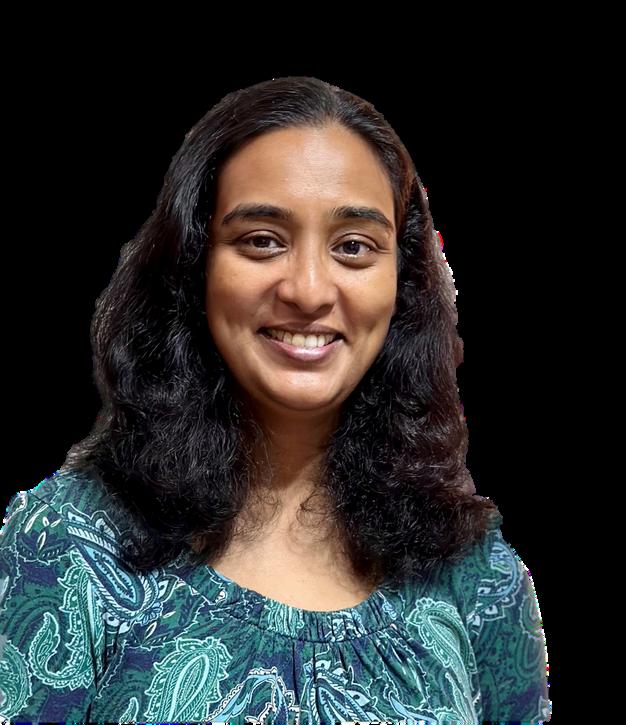

Smitha is a seasoned strategy and analytics professional. She runs her own Data & Analytics advisory practice the name of which also encapsulates her belief - DataHIPS stands for Data Hidden in Plain Sight , which is very often the case when it comes to decision making She has worked with firms such as Envestnet Yodlee, Swiss Re, HP, KPMG, and E&Y, across analytics, strategy, and consulting. She has sponsored and championed multiple D&I initiatives throughout her corporate career. Smitha has an MBA from SP Jain Institute of Management & Research, Mumbai and recently accredited herself as a Certified Financial Planner (CFP) because of her keen interest in evangelizing financial wellness as a stepping stone to an equitable world




India’s recent Supreme Court decision, which directed the Himachal Pradesh Government to reevaluate its stance on Child Care Leave (CCL), marks a critical juncture in the nation's approach to parental leave. While the case was specific to interpretation of CCL rules for a government employee, the apex court termed it a "constitutional entitlement for a working woman" This ruling provides a vital impetus for a discussion on a challenge that parents increasingly face as family structures evolve in India . This has ignited discussions among business leaders, HR professionals, and women's groups about how the concept of CCL could be shaped to better meet the diverse needs of families across India. This opinion piece is written based on discussions the authors have had on the topic with women leaders, who have a vested interest in getting this policy right
As it stands, Indian legislation provides women up to six months of maternity leave, while paternity leave is limited to a meager 14 days for civil servants, with no mandatory provision in the private sector This stark contrast not only emphasizes entrenched gender roles in caregiving but also overlooks the shared responsibilities essential in contemporary parenting dynamics.
As for Child Care Leave (CCL), under Central Civil Services (Leave) Rules, 1972, both female
government servants and single male government servants can avail up to 730 days (two years) of CCL, subject to some terms and conditions There is no mandate for the private sector.
The concept of extending CCL to a twoyear career break, though wellintentioned for promoting maternal and child health, brings with it a complex array of socio-economic implications "It is a good choice for physical & emotional bonding with the newborn child and the mother, especially when they have an older child to take care of," states Jaya However, critics warn of significant setbacks to women's career trajectories "Being out of the workplace for two years makes it more difficult to resume work unless you have been updating yourself technically during your break," remarks Elizabeth Thomas, Head Customer Analytics COE, Kantar She advocates for more inclusive policies: "It would be great if they could extend this to both parents, provide better childcare facilities near to office, mandatory crèches in all tech parks, flexi hours, maybe options to work part-time during this period "

The potential for extended leaves under CCL can influence hiring practices adversely. It could also exacerbate unconscious biases in the workplace Employers might subconsciously prefer hiring or promoting individuals who are less likely to take long breaks, skewing opportunities away from young parents, particularly women This undercurrent of bias can discourage equal participation in the workforce and contribute to a gender disparity that most modern workplaces are striving to eliminate.
“It definitely reinforces gender roles if not equally applicable to men and women Smaller companies that do not have the luxury of a large workforce to provide backup for employees that are still on the rolls but not available will hesitate to hire women, at ‘that’ age, hurting the progress agenda even further" notes Ganga Ganapathi, a senior marketing leader. This reflection underscores the need for balanced policies that do not inadvertently disadvantage women in the labor market.
Chitra Singh, Founder, Sales mentoring India, points out that despite the availability of paternity leave in many organizations, few men take advantage of it due to concerns about career advancement. She emphasizes the importance of balancing leave with childcare responsibilities, suggesting that shorter breaks combined with domestic help or family support might be more effective
Catering to the Millennial Parenting philosophies Millennials, who greatly value work-life balance and equality, might view policies that are not structured to be gender-neutral as regressive "We need to start thinking about
parenting rather than mothering Rules like these need to become gender neutral," says Aparna Devagiri, Coach and Researcher on Women’s Issues. This sentiment is common among newer generations of parents who expect more egalitarian workplace policies and are likely to advocate for reforms that support both parents' involvement in childcare equally.
Although same-sex marriage is not yet legally recognized in India, there have been significant strides in the fight for LGBTQ+ rights, including the decriminalization of homosexuality in 2018 However, same-sex couples still face legal and societal challenges in areas such as adoption and parental rights For same-sex couples raising children, the need for parental leave is equally critical. Policies that offer flexible and inclusive parental leave options are essential to ensure that all parents, regardless of gender or sexual orientation, have the opportunity to care for their children. This inclusivity is crucial in fostering a supportive environment for the development of all children and promoting equality.

Policies that offer flexible and inclusive parental leave options are essential to ensure that all parents, regardless of gender or sexual orientation, have the opportunity to care for their children.
On the flipside, the availability of extended CCL might create an expectation for women to prioritize childcare over their careers, even when such decisions might not align with their personal or professional aspirations. This societal pressure can place women in a challenging position, where taking full advantage of CCL becomes a norm rather than a choice, subtly enforcing traditional roles despite advancements in gender equality. Even in a so-called progressive family, availability of such an option may put pressure on the woman to avail of the so called benefit even if there are support systems in place, thereby forcing the woman to place her career on the backburner.
Is Leave the only solution especially for the private sector?
Any policy, hence, needs to provide flexibility to the parent, each of who’s situation can be vastly different, says Dr Shraddha Danani, Executive Coach She adds “It would be good if the duration of the break is a choice in the hands of the mother. Every mother has her own journey: some are ready to work after 40 days, some need to work, some need to take care of their children while some have other health conditions Requiring a fixed two-year leave, or not offering any options at all, could be challenging for those who need flexibility"
“Growing up in a public sector gated community, I have seen childcare facilities near work place decades ago and mothers / parents were happy to get back to work because they had a safe place for the little ones and care centers were accessible too.” Says Precilla Anju, Director, Human Resource and Operations who reflects on her experiences growing up
A combination of optional parental leave, flexible working options along with access to improved childcare facilities onsite would be a win-win Though highly ambitious, a plan which puts all three in place is likely the optimal longterm road map for India.

Examining parental leave policies in Nordic countries reveals a more egalitarian approach, where both parents are encouraged and supported to share childcare responsibilities equally.
Examining parental leave policies in Nordic countries reveals a more egalitarian approach, where both parents are encouraged and supported to share childcare responsibilities equally. Such models not only facilitate gender equality but also provide frameworks that India could adapt to its unique socio-economic landscape Instead of a rigid two-year leave solely for mothers, a flexible policy allowing either parent to utilize CCL could cater to the diverse needs of various families, empowering women to make decisions that best suit their professional and personal lives



Women have to feel less guilty being professionally ambitious, men have to feel more responsible.
To foster an inclusive and supportive work environment, India needs to consider several policy enhancements:
Gender-Neutral Policies: Implementing flexible, gender-neutral leave options that allow both parents to share childcare responsibilities equally. We would say that this can be extended with a 2 year leave available to either parent, for needed care giving breaks, whether for elderly or children.
Workplace Support Systems: Enhancing childcare facilities near workplaces, providing subsidies or incentives for companies to establish on-site childcare, and promoting flexible work arrangements. There need to be practical options for smaller organizations, who cannot set up their own
Awareness and Enforcement: Increasing awareness about the benefits of shared parenting responsibilities and ensuring robust enforcement of equitable leave policies to prevent discrimination.

However, there is no easy answer and beyond a point, behaviors trump policies. Women have to feel less guilty being professionally ambitious, men have to feel more responsible towards advancing both careers, the society has to accept that men can perform care giving roles also and need to contribute and finally employers need to see a business case in diversity beyond lip service.
Having said that, an enabling policy framework is a good start. India's journey towards refining its childcare leave policies must be thoughtful and inclusive, acknowledging the varied needs of modern families while promoting gender equality.

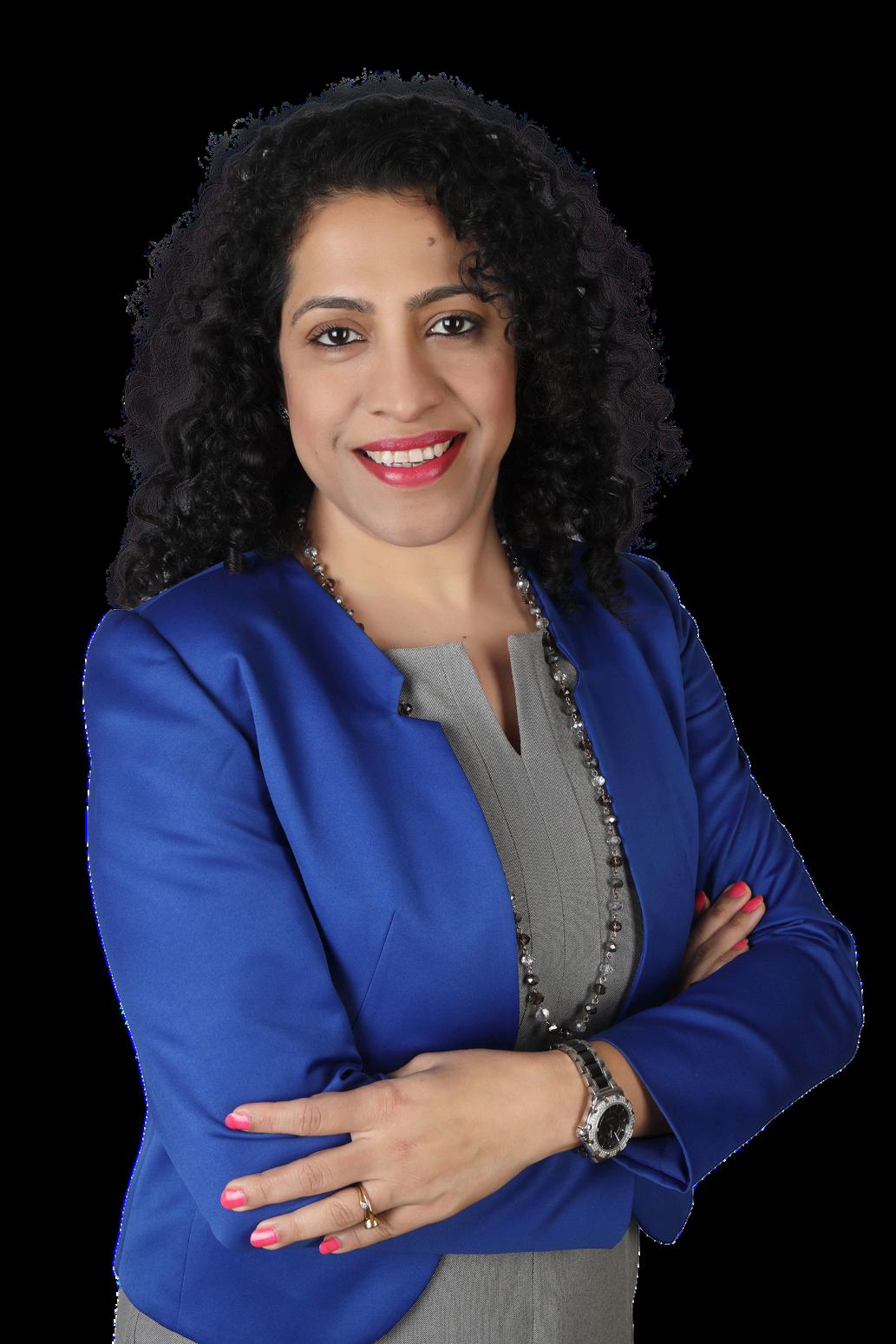

Shveta Verma is India & Asia Pacific Inclusion & Diversity Leader at PwC. She has 23 years of work experience within Human Capital and across diversified industries. Shveta joined PwC in March 2004 and her 19+ years of the journey have been outstanding She started as a business HC partner for tax line of service, moved on to be the Human Capital Transformation leader for India, and now leads the Inclusion & Diversity function In the last 8 years, her focus has been on the development and implementation of the Diversity Office & strategy, expanding the scope of Inclusion, People transformation strategy, work-life integration policies, enhancing the Employee experience and people value proposition, digitization & gamification of HC processes and leading Global teams & projects Optimism, being a fighter, integrity, influencing communication skills, questioning the status quo, leading from the front, leveraging the power of differences are some of the qualities and skills that Shveta possesses and infuses in her team. Shveta is a triathlete, marathoner, fitness enthusiast and loves theatre. She has won various awards for her acting skills during her college days. Her best way to beat the stress is learning the latest technology, music trends and working out with her 16-year-old son.

LGBTQ+ individuals have been part of Indian history, scriptures, artworks and were accepted by the major religions in India. However the community has always been stigmatized and their acceptance has always been a challenge. Over the years, even though the society has evolved with education and urbanization, their is very little change in their outlook towards LGBTQ+ individuals.
Fast forward to date, even though organizations are keen to ensure normalization of LGBTQ+ individuals into main stream, research suggests that LGBTQ+ individuals hesitate to come out at their workplaces due to the fear of discrimination and bias. Studies show that about 40-50% of LGBTQ+ employees are yet not open about their sexual orientation or gender identity at work due to fear of negative repercussions
The landmark Supreme Court ruling in 2018 decriminalising Section 377 was a monumental step toward LGBTQ+ rights in India This decision was not only a legal victory but also a societal milestone that created a stir and set the country for a change
Furthermore, the Transgender Persons (Protection of Rights) Act, 2019, aims to protect the rights of transgender individuals and improve their access to education and employment
However, despite these legal advancements, the journey towards complete acceptance and inclusion at workplaces is still uphill Discrimination, albeit illegal, persists in more subtle and covert forms Organisational policies and workplace cultures have not fully caught up with the legal framework, resulting in a gap between legislative progress and real-life experiences of LGBTQ+ individuals
To bridge this gap, it is important to empower people to take steps towards transforming their lives When LGBTQ+ individuals feel supported and included, they are more likely to thrive, both personally and professionally Empowerment includes creating safe spaces where individuals can express themselves freely, access opportunities equally, and contribute value without fear of prejudice

Here are some ways to empower LGBTQ+ individuals at the workplace:
Inclusive policies: Build anti-discrimination policies that specifically address issues related to sexual orientation and gender identity. These include clear procedures for reporting and addressing discrimination.
Education and training: Engage employees in continuous learning to create a more understanding and inclusive workplace. Conduct regular sessions to address unconscious biases and promote empathy.
Visible allyship and clarification on the role of bystander: Stand up for LGBTQ+ rights and actively contribute towards respecting individuals. When bystander and allies show visible support, it builds confidence and support shape and provides a sense of safety for those who are not comfortable coming out.
Support networks: Establish employee resource groups (ERGs) for LGBTQ+ employees to provide support and foster a sense of community. These groups can also serve as a platform to advocate for further inclusive practices within the firm.
Mentorship programmes: Invest in their career by creating mentorship opportunities where LGBTQ+ employees can receive guidance and support from senior leaders.
Work with families and Parents- Whereever possible, organisations should explore engaging with families of LGBTQ+ employees to acknowledge the contribution of their loved ones in the organization and that the workplace respects their identity.

When bystander and allies show visible support, it builds confidence and support shape and provides a sense of safety for those who are not comfortable coming out.


Role of allyship and inclusion
Allyship is awareness in action – it involves active participation in creating an inclusive environment Allies challenge discriminatory behaviours, advocate for inclusive policies, Speak up and provide emotional support to LGBTQ+ colleagues An inclusive culture is one where diversity is celebrated, and every individual feels valued and respected.
Creating and fostering an inclusive culture is a topdown cascade – beginning with a strong and active leadership commitment that percolates across
management levels. It involves continuous efforts to break down stereotypes, challenge prejudices, and promote a culture of respect and equality. One can foster this culture by celebrating
LGBTQ+ events, recognising the contributions of LGBTQ+ employees, and ensuring that their voices are heard in decision-making processes
While legislative changes in India have paved the way for greater acceptance and rights for LGBTQ+ individuals, there’s a long way to go before we achieve true workplace inclusion. By implementing inclusive policies, promoting allyship, challenging mindsets, and fostering a culture of inclusion, we can create workplaces where everyone, regardless of their sexual orientation or gender identity, can thrive.
As we move forward, it is essential to remember that inclusion is a continuous process and this is a journey. Every step and effort counts. Corporates and organizations have a big role in bringing about the change in the communities and we need to take the right actions to be change agents. Let us harness this collective leadership to build a future where everyone feels safe, respected, and valued for who they are


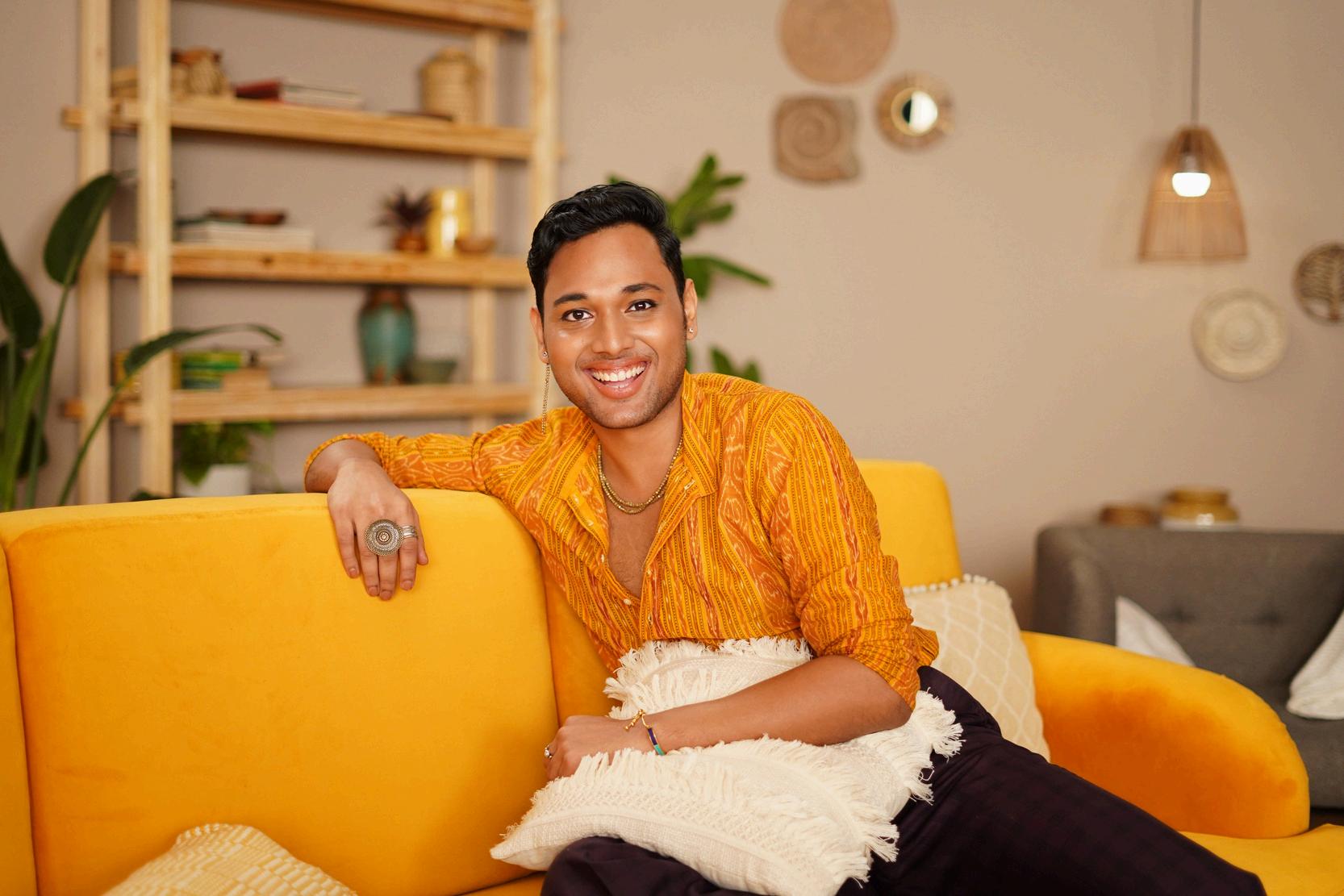
Anwesh is a Lead Technical Artist at Aristocrat Gaming and a versatile Indian creative Visual Designer, Digital Artist,Writer, Actor, and Model Notably, he's the first Indian to receive the 'Troy Perry Medal of Pride for Compassionate Activism' and won Mr. Gay World India 2016. Creator of 'The Effeminare,' Anwesh envisions a utopian world through his art, advocating for better representation of queer identities He's been featured in Vogue, Rolling Stone, and Cosmopolitan India, and has spoken at TEDx about celebrating gender as a spectrum. Anwesh's clients include Meta, Disney, Netflix, Google, and he designed inclusive WhatsApp wallpapers for Meta in 2022 His book illustrations include 'Queer Sapien' and 'Queers in Quarantine'. He aims to inspire brown femme queer individuals to reshape queer narratives through Tech, Art, and Design
Q: What was your journey like in discovering and embracing your authentic identity?
Oh, what a rollercoaster it’s been! �� Growing up, I always felt a bit different, like I was a puzzle piece that didn’t quite fit. It took a lot of soul-searching, countless conversations with myself, and the courage to step out of the shadow of societal expectations It wasn’t easy, but every step towards self-acceptance felt like shedding a weight off my shoulders. Finding my true self has been the most liberating experience, and every day, I’m grateful for the journey and the person I’ve become ��✨

Remember, your identity is valid, and you deserve to be happy and authentic.

Q: How do you envision a more inclusive and accepting society for LGBTQ+ individuals, and what steps do you believe are necessary to achieve it?
Imagine a world where everyone is celebrated for their uniqueness, where love and acceptance are the norms, not the exceptions. � To get there, we need comprehensive education on LGBTQ+ issues, starting from a young age. We need allies to stand with us, amplify our voices, and challenge dis it. Policies and law representation in crucial. It’s ab everyone feels Together, we ca embraces diversity
Q: What initia participate in to LGBTQ+ commu
I’m passionate ab to advocate for L involved in vario sparks conversat highlight our expe
organizations that work towards LGBTQ+ inclusion and participating in Pride events are some of the ways I give back. I also conduct sessions with MNCs and tech companies in particular where I speak actively on how to build an inclusive workplace, what it means to be a good ally, and what policies ensure basic sanity for inclusion of queer folx. It’s all about visibility and using my voice to champion change. Every little action counts, and I’m committed to making a difference, one step at a time.
Q: What do you hope people take away from hearing your story or the stories of others within the LGBTQ+ community?
I hope my story, and the stories of others, resonate with people on a deep level. �� We all crave acceptance and understanding, and I want people to see that our journeys, while unique, are filled with the same hopes, dreams, and fears as anyone else’s I hope it inspires empathy, encourages open-mindedness, and reminds everyone that love is love Our stories are powerful; they have the potential to change hearts and minds I want people to feel connected and realize that we’re all in this


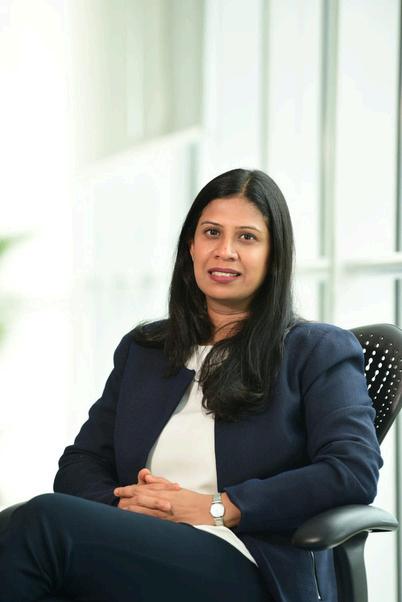


As the head of Human Resources for SAP in India, Shweta provides HR leadership across the region for all entities including R&D, Sales, and Services organizations. She is responsible for designing and executing the people strategy as well as elevating our People Culture. Her focus is to deliver futureoriented and holistic people experiences, leveraging globally proven initiatives tailored to our local needs, with well-being and employee happiness at the heart of it Shweta has 20+ years of strong client facing experiences, working with organizations such as Microsoft and Wipro Ltd. Outside of the office, she enjoys catching up on non-fiction books, watching movies, and cooking for her two young daughters.

Keep your head down & Hustle hard’ – a quote by Denzel Washington which describes Shubham the best Shubham brings over 6 years of experience in DEI & Talent Attraction, He currently is a part of the APJ talent attraction team at SAP and is passionate about AI recruiting & research. He is also passionate about equity and works actively to incorporate the same in his day-to-day life and learn from it every day. Shubham is based out of Bangalore, loves nature and is a big cynophilist. He believes in having attention to detail, Forwardthinking and wants to change the perception of Human Resources. He also believes in ‘having a purpose’ above all When he is not working, you can see him doodle, cook and travel. He is an avid Formula 1 enthusiast (Any Danny Ric Fans?) and plays badminton in his free time
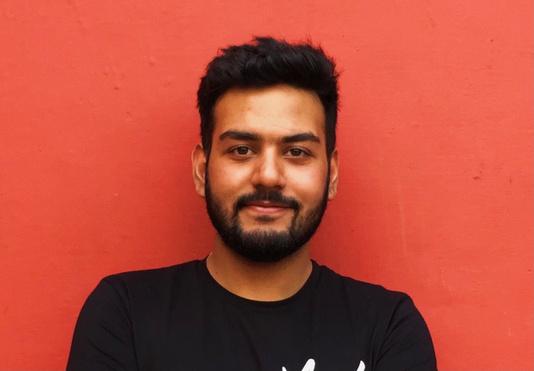


“In

India has witnessed a significant transformation in its social landscape over the past few years, particularly concerning the rights and inclusion of the LGBTQIA+ community The landmark judgment by the Supreme Court of India in 2018, which decriminalized homosexuality by striking down Section 377 of the Indian Penal Code, was a monumental step towards equality This has paved the way for greater inclusivity in various aspects of society, including the workplace. However, despite these advances, many challenges remain. Here we explore the current state of LGBTQIA+ inclusion in Indian workplaces, the progress made, and the road ahead.
The decriminalization of homosexuality in 2018 was a watershed moment for LGBTQIA+ rights in India Prior to this, Section 377 was used to criminalize consensual same-sex relationships, leading to widespread discrimination and stigma. The Supreme Court's ruling not only decriminalized homosexuality but also recognized the inherent dignity and rights of the LGBT community. This legal validation has encouraged many organizations including SAP in India to adopt more inclusive policies and practices
In the wake of the 2018 ruling, several leading corporations in India have taken proactive steps to foster LGBTQIA+ inclusivity Companies have been at the forefront of this change, leveraging their global diversity, equity, and inclusion (DEI) frameworks to set benchmarks in India.
At SAP in India, we have also made considerable progress:
Pride@SAP India – SAP was quite responsive in forming an ERG (Employee Resource Group) for the community to support them and show solidarity towards them. A “Coming out support” framework was launched to help employees in defining a step-by-step process in case they wish to come out at work

Enhancing the Prevention of Sexual Harassment (POSH) policies to include a gender-neutral language, looking at policies from a lens that Inclusion should be at the start of when a policy is formed instead of a byproduct.
Introducing Gender-neutral washrooms.
Introducing Same-sex partner benefit programs like health insurance, support with gender transition and gender affirmation procedures
Optimising the job description to look more gender neutral. At SAP, the Talent Attraction colleagues are encouraged to communicate SAP’s commitment to Inclusion by highlighting and talking about inclusive benefits. The Equal opportunity employer clause mentions each candidate is treated equal and with no bias irrespective of who they are or where they come from
Despite the positive steps in corporate India including SAP, several challenges hinder the complete inclusion of LGBTQIA+ individuals in the Indian workplace:
Societal Attitudes: Deep-seated prejudices and social stigma surrounding homosexuality and transgender identities persist in Indian society. This sometimes translates into workplace discrimination, where LGBTQIA+ employees may face bias, harassment, or exclusion
Lack of Awareness and Sensitization: Many companies, especially small and medium-sized enterprises (SMEs), lack awareness about LGBTQIA+ issues There is a critical need for comprehensive training programs to educate employees about the importance of inclusivity and the challenges faced by the LGBTQIA+ community. At SAP in India, we have an internal sensitization programme called as “its none of your business” (where none is conveniently stricken, because it is!)
Legal Protections: While the decriminalization of homosexuality was a significant step, India still lacks comprehensive anti-discrimination laws that specifically protect LGBTQIA+ individuals.
Impact of AI (Artificial Intelligence): The impact that AI on the LGBTQIA+ community needs to be monitored carefully in future The community is a particularly susceptible to biases that harms by influencing policy making powers. It is extremely crucial to actively question and dismantle heteronormative and cisnormative prejudices in AI systems It is vital to diversify data sources by integrating LGBTQIA+ experiences to guarantee equitable and inclusive AI algorithms. This involves incorporating diverse perspectives and experiences, specifically those of LGBTQIA+ individuals, into data collection processes for the development of more accurate and inclusive AI systems.

Deep-seated prejudices and social stigma surrounding homosexuality and transgender identities persist in Indian society.

It is not just about ticking a box, to create an inclusive workplace for LGBTQIA+ employees, some of the best practices which can be adopted are:
Inclusive Policies: Developing and implementing policies that explicitly and intentionally prohibit discrimination based on sexual orientation and gender identity is crucial. This includes extending benefits such as health insurance to same-sex partners and supporting gender transition processes
Sensitization Programs: Conducting regular sensitization sessions to educate employees about LGBTQIA+ issues and microaggressions can help reduce biases and create a more inclusive environment These programs should cover topics such as the use of inclusive language, why a simple thing like usage of pronouns is important, understanding gender diversity, and addressing unconscious biases.
Support Networks: Establishing employee resource groups (ERGs) for LGBTQIA+ employees can provide a supportive community within the workplace. These groups can also serve as a platform for advocacy and awareness-raising initiatives In SAP in India, Pride@SAP is doing splendid work to recognize and celebrate various observances like Transgender Day of visibility, IDAHOBIT, International Bisexuality Day et al.
Leadership Commitment: The commitment of senior leadership to LGBTQIA+ inclusion is essential. Leaders should actively promote diversity and inclusion, both through policies and by role-modelling A visible and vocal support from top management can significantly influence organizational culture
Partnership with NGOs: Collaborating with nongovernmental organizations (NGOs) that work on LGBTQIA+ issues can provide companies with valuable insights and resources These partnerships can also help in organizing workshops and sensitization programs. At SAP in India, we recently delivered on a skill-based training program to mentor and train 22 Trans folks in Tamil
6. Hiring practices: There is a huge opportunity to successfully recruit the best LGBTQIA+ talent Organisations need a comprehensive approach that includes tailored LGBTQIA+-friendly employer branding, training Talent Attraction colleagues for assessing diverse candidates Hiring LGBTQIA+ interns and offering them the opportunity to join the organization full-time opportunities is an effective way to explore their comfort and organisation’s readiness Employee referrals can be a strong LGBTQIA+ recruitment source
While considerable progress has been made, there is still a long way to go in achieving full inclusion for LGBTQIA+ individuals in the Indian workplace Continuous efforts are needed to change societal attitudes and eliminate biases. we must remain committed to creating a supportive and inclusive environment for all employees, regardless of their sexual orientation or gender identity
The journey towards LGBTQIA+ inclusion in the Indian workplace is ongoing, marked by significant milestones and persistent challenges As organizations recognize the value of diversity at workplace and take concrete steps to support LGBTQIA+ employees, the landscape will gradually transform. The combined efforts of corporations, advocacy groups, and legal reforms will be crucial in building a more inclusive and equitable society
For HR professionals, the mandate is clear: fostering an inclusive workplace is not just a moral imperative but a business necessity in the modern, diverse world Inclusion may seem like a destination that we need to arrive at, but the reality is that it's always going to be a work-in-progress.


Sonia Almeida Soares is a dreamer, a mother and currently serves as Director of Inclusion & Diversity, Employer Branding and People & Culture Communications at Volvo Group in India With over 18 years of rich and extensive experience and having worked across various HR roles and verticals and on global projects in a diverse set of esteemed MNCs, across different industry sectors such as Honeywell Technology Solutions, Praxair Inc (Linde Group) and now with Volvo Group Her areas of specialties include Inclusion, Equity & Diversity, Leadership Development, HR Strategy & Execution, Culture Transformation, Change Management, Employee Engagement, Talent Management and Employer Branding thereby successfully improving the impact on the business in all the organizations that she has been associated with
For a society to be truly progressive, it is fundamental that all individuals are treated equally, regardless of race, religion, gender, colour, or sexual orientation Such equality not only upholds human rights but also fosters economic growth and progress by leveraging the diverse talents and perspectives of the entire population Everyone deserves to be treated with respect, dignity, and fairness. Exclusion, as a socially constructed barrier, undermines these fundamental human rights and alienates individuals, leading to social fragmentation and economic inefficiency. Ultimately, true progress is measured by how well a society respects and uplifts all its members.
In India, there is a growing acceptance of LGBTQ+ inclusion at least in the cities. There has been significant progress in the right direction. In 2018, a historic judgement unanimously ruled that Section 377 of the Indian Penal Code (1861) which included
criminalization of consensual conduct between adults of the same gender was unconstitutional. Subsequently in 2019, the Transgender Persons Act was enacted to ensure the rights and welfare of transgender individuals However, marriage between individuals of the same gender in India is currently not legalised recognised
Also, in recent years, there has been a notable increase in the positive and more common portrayal of homosexual relationships and transgender individuals in Indian film and television. This shift contributes to normalising these relationships and identities, showcasing role models, and challenging stereotypes, which in turn leads to greater societal acceptance and understanding and sparking important conversations.
Traditionally, companies have been focussing on gender diversity only for past few decades and this emphasis is expected to continue for



several more years. Some companies have expanded their focus to include other aspects of diversity, such as age, geographical region, disability and so on Even fewer have taken the leap to include the focus on LGBTQ+ diversity
At Volvo Group in India, we create an environment where we can bring our true unique self to work every single day. Because we know when each one of us gives our whole selves, we all receive more. We recognize that our colleagues come from different parts of India and the world, where levels of acceptance and awareness of LBGTQ+ community can differ significantly Several people hold misconceptions due to diverse backgrounds, social upbringings, and other factors, which can sometimes result in homophobia
We understand the significance of creating a safe space for this community within our company and are committed to finding ways to make a positive impact beyond our organization as well.
One critical element of success and genuine progress is top leadership support and buy-in without which efforts would just be superficial. At Volvo Group, we are proud to have robust support from our top leaders, which serves as a crucial pillar and boosts our confidence and drive to propel further This support system is instrumental in fostering an inclusive and diverse workplace.
We began our journey towards LGBTQ+ inclusion some years back by raising awareness and fostering sensitivity around these issues During this process, we debunked numerous myths and misconceptions, and we continue these efforts as our company grows
and welcomes new employees from diverse cultures. A common question we encountered initially was whether we would start actively hiring people from the LGBTQ+ community. Our response has always been that we already have LGBTQ+ individuals among us. Studies indicate that approximately 5-10% of any population typically identifies as LGBTQ+.However, many may not have come out due to concerns about safety and acceptance at home and in the workplace. Therefore, our focus remains on creating a supportive environment where each of us feel safe, respected, valued, and comfortable being our authentic selves
The next phase of our journey involved establishing a local Employee resource group (ERG) called V-EAGLE in India dedicated to bringing together the LGBTQ+ members and allies. Though we have a global chapter of the V-EAGLE ERG, where our local colleagues could participate as members or allies, we recognised the importance of having a local chapter that is closely connected to and supported by the global ERG With this step, we saw a significant increase in the number of
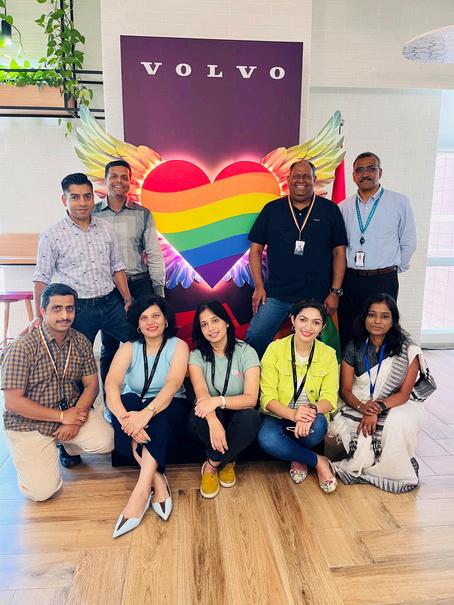




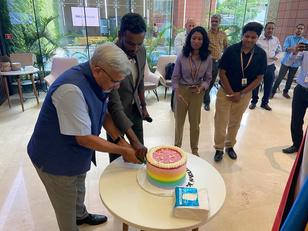







member and ally registrations, making us the fourth largest country within the Volvo Group in terms of V-EAGLE supporters within just six months!
We continued our efforts fervently by extending sensitising initiatives to even our shop floor colleagues, actively breaking misconceptions and fostering a culture of inclusion. Our commitment to creating an inclusive company is evident through various interventions aimed at addressing unconscious biases, microaggressions, and promoting use of inclusive language. These interventions take various forms, including workshops, theatre performances, movie screenings, art interventions, guest speaker sessions, sharing of coming-out stories of our internal employees, to name a few. At our company, LGBTQ+ inclusion is not just a once-a-year initiative; it's an ongoing conversation that we prioritise year-around. However, during Pride month, we amplify our efforts even further, ensuring out commitment to diversity and inclusion remains visible and impactful
In our ongoing quest for inclusivity, we have implemented gender agnostic policies and practices to create an enabling ecosystem where everyone feels a sense of belonging. One significant change was transitioning from traditional maternity and paternity leaves to primary care giver leaves, applicable for up to one year and secondary caregiver leaves for up to one month. These inclusive policies extend to adoption and surrogacy, irrespective of marital status or sexual orientation Furthermore, we also introduced same gender insurance coverage, allowing colleagues to include their same gender or live-in partners. Our Creche and Prevention of Sexual Harassment policies are also gender neutral and support all genders.
As part of our medical insurance coverage, we now provide support for gender reassignment surgery and extended pre-post operative care. From infrastructure standpoint, we have introduced gender neutral washrooms called "Everyone's washroom", to ensure everyone feels comfortable and respected. Additionally, we have 24/7 counselling support to provide assistance whenever needed

We firmly believe that our efforts to promote inclusivity and diversity within our organization have a broader impact on the society as a whole.
And we are continuously evolving to bring in more and more best practices that foster an environment of empathy and care for all These steps are critical as it also fosters a sense of pride among our employees, not just the direct beneficiaries, and highlight our commitment to being a caring and inclusive organization
We firmly believe that our efforts to promote inclusivity and diversity within our organization have a broader impact on the society as a whole As employees carry these awareness and learnings into their social circles, whether it's a home, among friends, relatives, or neighbors, they contribute to a ripple effect of positive change If more companies follow suit and take such progressive steps, we can witness a significant shift in societal mindsets
I would like to conclude with a quote that deeply resonates with me "It is not our differences that divide us It is our inability to recognize, accept, and celebrate those differences" - Audre Lorde.

Q: What was your journey like in discovering and embracing your authentic identity?
My journey in discovering and embracing my true self has been challenging but very rewarding. For most of my life, I felt like I was walking in uncomfortable shoes that I couldn't take off, always hiding who I really was However, my therapist and close queer friends gave me incredible support, helping me embrace my true identity My workplace has also played a big part in allowing me to be myself, creating an environment where I feel valued and accepted
Being a trans woman who doesn't fit into traditional norms has given me a unique perspective, making me think deeply about society and myself This journey has helped me understand myself better and strengthened my commitment to my work as a DEI lead Embracing my identity has been a wonderful journey, one that has helped me feel more fulfilled and empowered in both my personal and professional life.
Q: How do you envision a more inclusive and accepting society for LGBTQ+ individuals, and what steps do you believe are necessary to achieve it?
The journey has been tough, even for cis-women. Many men have become allies for women because they've seen the struggles faced by their grandmothers, partners, sisters, or friends These personal connections and observations have helped them understand the challenges women face

Maira Q. is a passionate advocate for Div current Lead-DE&I at Godrej Capital, she is d and included, with a special emphasis on ci with disabilities Outside of her professional l and the art of cooking She believes that s whether found in a great read or a delicious about diversity and inclusion in our daily expe a job but a personal commitment. She is alwa inviting others to connect with her to make a d


ersity, Equity, and Inclusion (DE&I) As the dedicated to ensuring that everyone feels valued s-women, transgender individuals, and people life, Maira finds comfort in the world of books tories are woven into the fabric of our lives, s recipe. Maira actively engages in discussions eriences on LinkedIn. For her, DE&I is not just ays open to collaboration and exciting projects, difference together
When you take the time to get to know us, you'll see that we share common experiences and aspirations. This understanding fosters empathy and breaks down barriers.

and have motivated them to support gender equality The same approach needs to be taken for the LGBTQ+ community.
To be a good ally, people need to see us as human beings, as friends, and as colleagues, not as outsiders or strangers. Building genuine relationships with people from the LGBTQ+ community is key When you take the time to get to know us, you'll see that we share common experiences and aspirations This understanding fosters empathy and breaks down barriers.
Understanding the specific hardships we face is also crucial. For example, many LGBTQ+ individuals struggle with finding jobs or securing housing due to discrimination. By learning about these challenges firsthand, allies can better appreciate the obstacles we encounter and be more effective in their support
Being a good ally means standing with us in our struggles and advocating for our rights It's about listening to our stories, understanding our experiences, and using your voice to help create a more inclusive and supportive environment. When allies see us as friends and colleagues, they can better understand our journey and contribute to making the workplace and society a better place for everyone


I hope people realize that by being open, empathetic, and proactive, they can significantly contribute to building a more inclusive and supportive world for the LGBTQ+ community.

Q: What initiatives or activities do you participate in to support and advocate for the LGBTQ+ community?
I actively use my LinkedIn to discuss inclusion and the role both corporations and individuals can play in fostering it. Beyond that, I mentor young queer professionals to help them navigate their lives and careers in our society. As the lead for DEI at Godrej Capital, I also work to create safe spaces for the LGBTQ+ community, opening doors and opportunities for them within our organization. This allow me to support and advocate for the LGBTQ+ community in meaningful ways
Q: What do you hope people take away from hearing your story or the stories of others within the LGBTQ+ community?
From hearing my story or the stories of others within the LGBTQ+ community, I hope people recognize the immense power that each individual holds to make the world more equitable for all. Every person has the ability to create positive change, and this starts with advocating for queer rights and opening both their hearts and doors to queer folks.
I want people to see that meeting members of the LGBTQ+ community and understanding our lives can foster empathy and break down misconceptions By engaging with our stories, people can better appreciate the unique challenges we face and the strength it takes to navigate them This understanding can inspire others to become true allies.
Being a true ally means more than just supporting us in words; it means taking action to stand with us. Advocate for inclusive policies
in your workplaces, support LGBTQ+ businesses and events, and challenge discriminatory behaviors whenever you encounter them. Use your voice to amplify ours and help create spaces where everyone feels valued and respected.
Ultimately, I hope people realize that by being open, empathetic, and proactive, they can significantly contribute to building a more inclusive and supportive world for the LGBTQ+ community We all have the power to make a difference, and it starts with understanding, acceptance, and a commitment to equity for all
Q: What advice would you give to someone who is struggling to come to terms with their identity or seeking acceptance?
To anyone struggling to come to terms with their identity or seeking acceptance, my advice is to take your time and remember that you are not alone. Don't feel pressured to rush into anything; this journey is deeply personal and unique to you.
Reach out to support groups and communities where you can connect with others who have faced similar challenges. Meeting people from the LGBTQ+ community can be incredibly reassuring, as many have navigated similar paths and are often very open to offering support and guidance
If you have access to mental health professionals, don't hesitate to seek their help. They can provide valuable assistance and support during this time Remember, every day brings progress, and things will get better. Trust in yourself, seek out supportive networks, and take each step at your own pace.


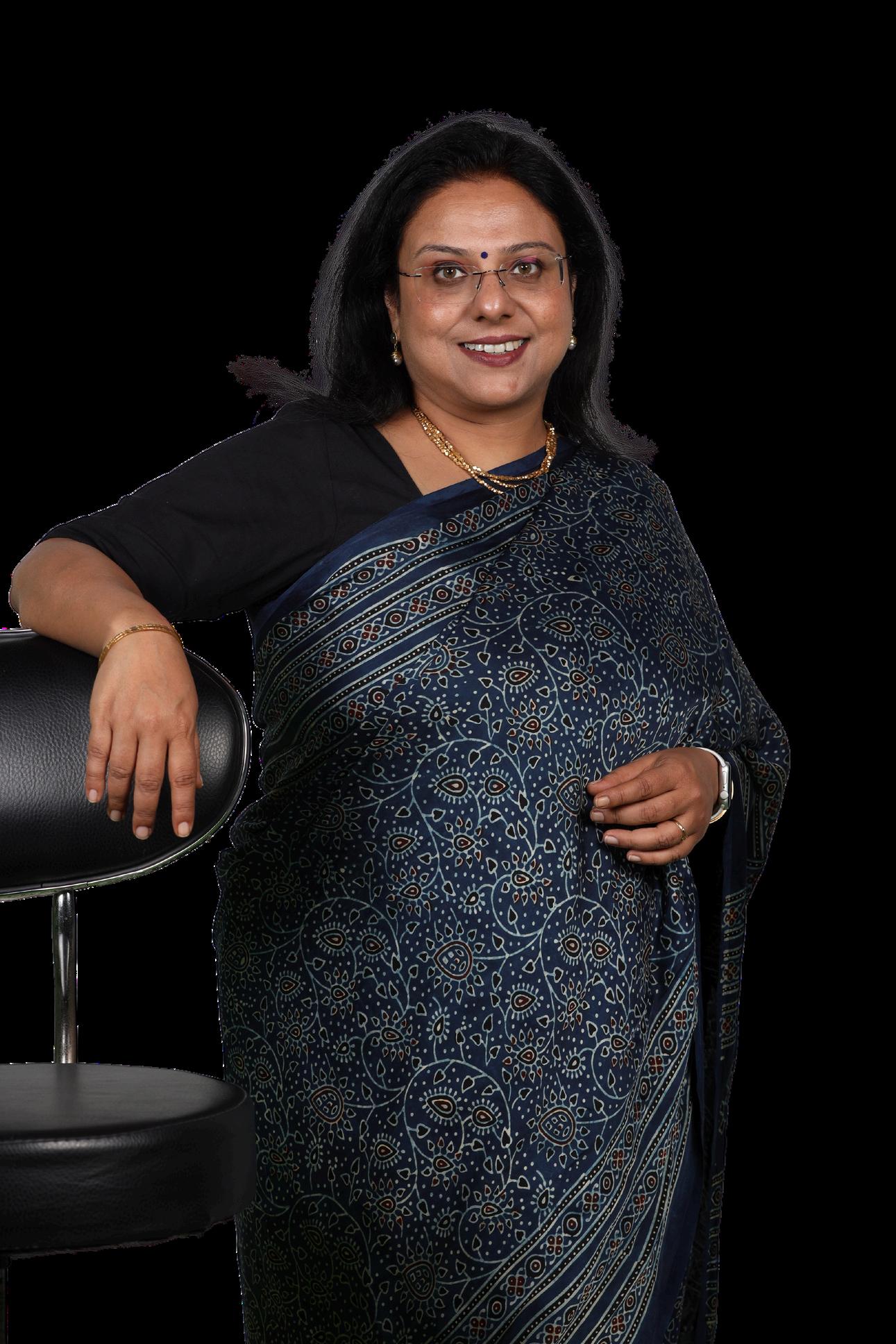
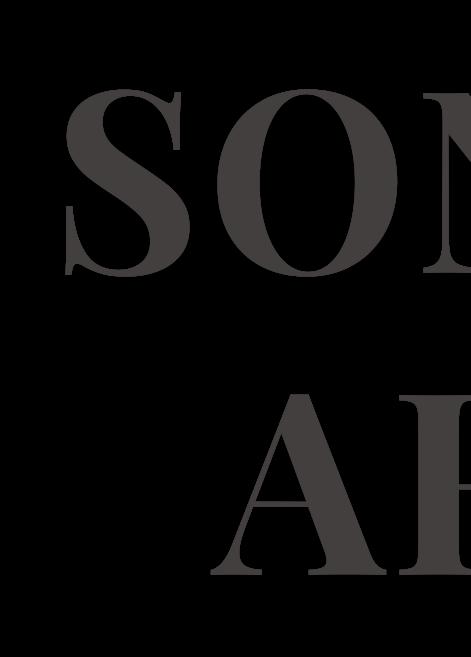
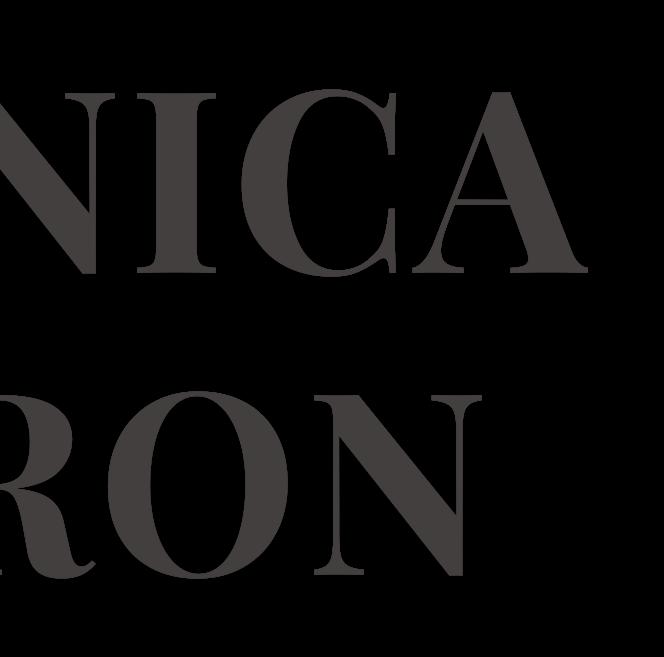

Sonica Aron, Founder and CEO of Marching Sheep, transitioned from a solopreneur to leading a thriving team of HR consultants. Her firm serves 300+ clients across 80 countries and various industries. Sonica is a recognized thought leader in diversity, inclusion, and progressive HR practices, contributing to major publications. She addresses unconventional topics, advocating for issues like menopause inclusion in medical benefits and a systemic approach for new mothers. A charismatic speaker at conferences, Sonica believes in the societal connection of organizations and actively engages in noncommercial awareness campaigns. Additionally, she supports an NGO rehabilitating acid attack survivors in India
Did you know March 31st is International Transgender Day of Visibility?
Or that 26th April is International Lesbian Visibility day?
Or that September 23rd is Bisexual Visibility day?
June each year, more in the recent years, bursts with vibrant colors, joyous parades, and a collective spirit of celebration and solidarity across institutions, organisations and community. It's Pride Month, a time to celebrate love, the LGBTQIA+ community's resilience, achievements, and the ongoing fight for justice, rights and equality. But what happens when the confetti settles and the last float passes? Does the fight for LGBTQIA+ rights and the celebration of authenticity fade away until next June?


Pride is a year-long commitment, a continuous journey of self-discovery, allyship, and advocacy. Pride isn't just for LGBTQIA+ folks. It's a celebration for everyone who believes in justice, equal rights and acceptance It's a call to action for all of us to be better allies, advocate for inclusion, and create a world where everyone feels empowered to be their authentic selves. Let's carry the spirit of Pride beyond June, making every day a day of empowerment, respect, and celebration for all. While June serves as a powerful launching pad, here's why embracing Pride as a year-round movement can create lasting change:
Pride Month reminds us of how the journey for equal rights started and brings visibility to the LGBTQIA+ community, fostering understanding and acceptance However, this needs to extend beyond the month of June. Throughout the year, we can actively seek out LGBTQIA+ narratives in books, movies, and media. Engaging with LGBTQIA+ businesses as partners, artists, and organizations creates a constant dialogue, dismantling stereotypes and building bridges of empathy
Creating safe spaces for LGBTQIA+ individuals to express themselves authentically is crucial beyond Pride Month. This can be done through LGBTQIA+ community centers, online forums, or simply being an open, supportive friend or colleague. Educating ourselves on LGBTQIA+ issues, respecting pronouns, and actively challenging prejudice are year-round actions that cultivate belonging Inclusion starts with ‘I’ Every individual has the agency to start making an active effort in their own network, it just requires intent. Intent too starts with ‘I’
3. Celebrating Intersectionality:
The LGBTQIA+ community is far from monolithic. Members come from diverse backgrounds, ethnicities, and socioeconomic situations Pride Month is a great time to highlight these intersections, but let's continue this awareness all year-round We need to engage with the community from different walks of life. People working in corporate, journalists and media focussing on promoting equal rights, people seeking employment, people coming from diverse social economic strata, religions, cultures to recognise the diverse tapestry within the community and their requirements needed to build a truly inclusive world. We need to make them a part of the solution
4. Amplifying LGBTQIA+ Voices:
June provides a platform for LGBTQIA+ voices to be heard. But these voices deserve amplification all year round Authentic candid conversations matter Speaker sessions, panel discussions, fireside chats with community members to understand lived realities, will give them a platform to connect with society at large and sensitize everyone of their authentic needs, bust myths, negate stereotypes, promote understanding. Amplification through social media will ensure wider reach
5. Advocacy in Action:
Pride Month is often a time for public displays of support. However, true advocacy goes beyond rainbow logos and social media filters We can contact our representatives year-round to voice support for LGBTQIA+ rights legislation Contribute to LGBTQIA+ legal action or organizations working for social justice Every action, big or small, contributes to a more equitable future. Contribution is not always monetary, though it can hugely support education, healthcare
facilities which in turn can lead to better employability and independence However, contribution can also be in the form of allyship and advocacy, in the form of giving time to students from the community for building knowledge and skills, connecting them to potential employers providing internship opportunities etc Meaningful contribution can truly make a difference to someone’s life, and we need not wait for June for that.
The fight for LGBTQIA+ equality thrives on the collective power of individual actions Here are some ways you can personally contribute to a more inclusive and empowering world, every day:
Educate Yourself: Dive deeper than the rainbow flag. Learn about the history of the LGBTQIA+ rights movement, the diverse experiences within the community, and the specific challenges faced by different LGBTQIA+ identities There are countless documentaries, books, podcasts, and online resources waiting to be explored.
Challenge Assumptions: We all have biases, conscious or unconscious Reflect on your own assumptions about gender, sexuality, and relationships Question stereotypes and seek



Throughout the year, we can actively seek out LGBTQIA+ narratives in books, movies, and media.



Normalize LGBTQIA+ relationships by celebrating them with the same enthusiasm as straight relationships

out stories that challenge your preconceived notions Take online quizzes or read articles on LGBTQIA+ issues to identify your own biases and actively work towards dismantling them. Seek out people from the community and interact with them Support LGBTQIA+-Owned Businesses: Put your money where the mouth is! Seek out businesses owned and operated by LGBTQIA+ individuals. This is a fantastic way to directly contribute to the community's economic empowerment.
Be a Visible Ally: Allyship is a verb It's about actively using your voice to speak out against discrimination, promoting LGBTQIA+ rights, and creating safe spaces. Even small acts, like correcting someone's pronoun usage or challenging homophobic jokes, can make a big difference.
Practice Active Listening: When someone shares their story, listen attentively and with empathy. Avoid making assumptions or offering unsolicited advice
Celebrate Diverse Relationships: Normalize LGBTQIA+ relationships by celebrating them with the same enthusiasm as straight relationships Attend a same-sex wedding, greet your friend's partner warmly, and challenge heteronormative assumptions in everyday conversations.
Embrace Gender-Neutral Language: Using gender-neutral pronouns like "they/them" or avoiding overly gendered language in everyday interactions creates a more inclusive space for everyone
Small gestures of support can have a significant
impact. Here are some micro-affirmations you can integrate into your daily life:
Correct Misgendering: If you hear someone misgendering another person, politely correct them using the person's preferred pronouns.
Celebrate Coming Out Stories: Be an enthusiastic supporter when someone shares their coming-out story. Celebrate their courage and authenticity.
Amplify LGBTQIA+ Voices: Share social media posts from LGBTQIA+ creators, recommend books or movies by LGBTQIA+ authors, and actively seek out diverse voices in your daily media consumption.
Remember, even small changes in individual behaviour can create a ripple effect, fostering a more inclusive and empowering world for everyone By incorporating these changes, we can ensure that Pride truly extends beyond a single month, becoming a year-round journey towards a more just and equitable society. Let's celebrate the rainbow, not just in June, but throughout the year, making the world a more inclusive and empowered space for all To make this simpler and more concrete, we have shared a calendar of several international days and weeks that are observed globally. Lets together create awareness about every dimension of diversity within the LGBTQIA+ community, because everyone is unique, everyone has the right to be their authentic self, everyone has the right to love, everyone has the right to live the life they want. Let’s not come in the way Lets not celebrate just a month, but remember to work towards awareness and equal rights all year round.



